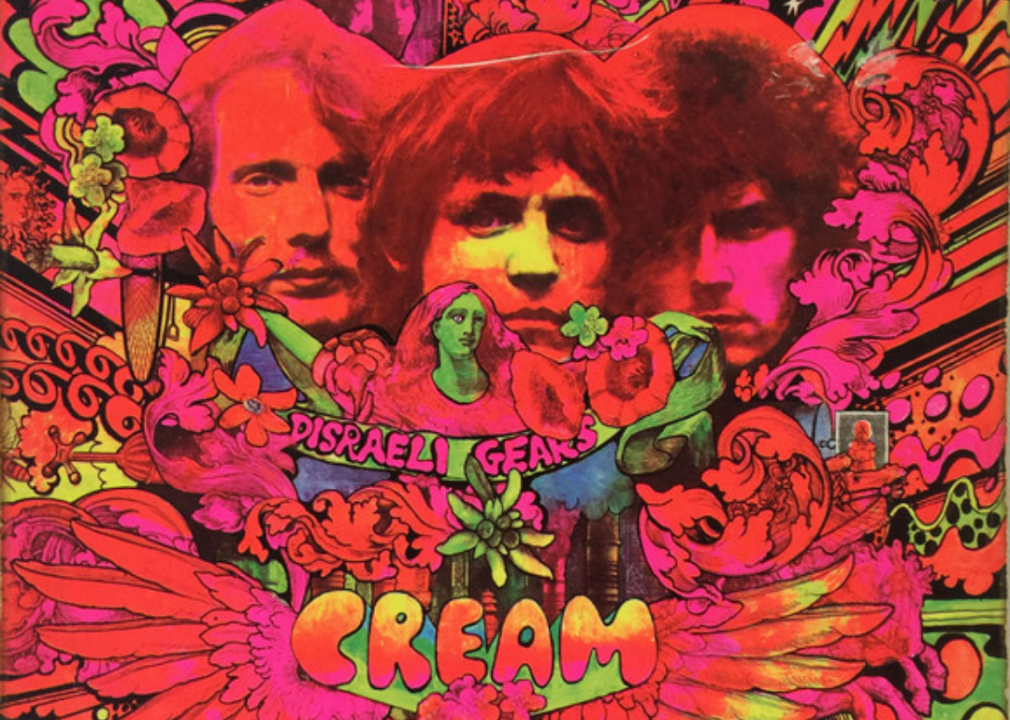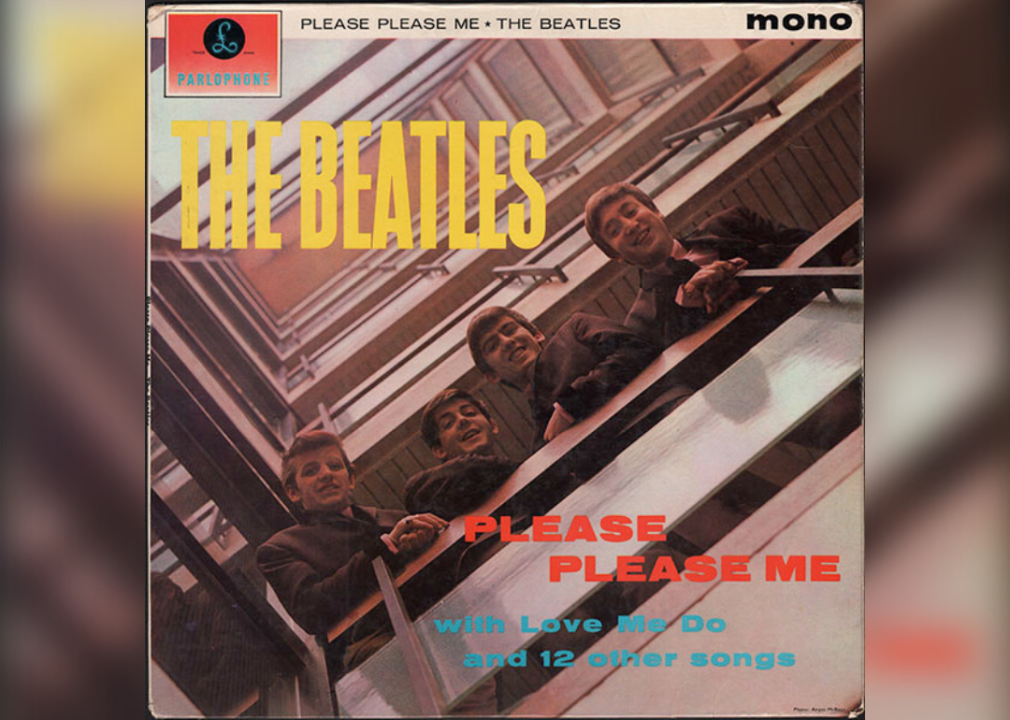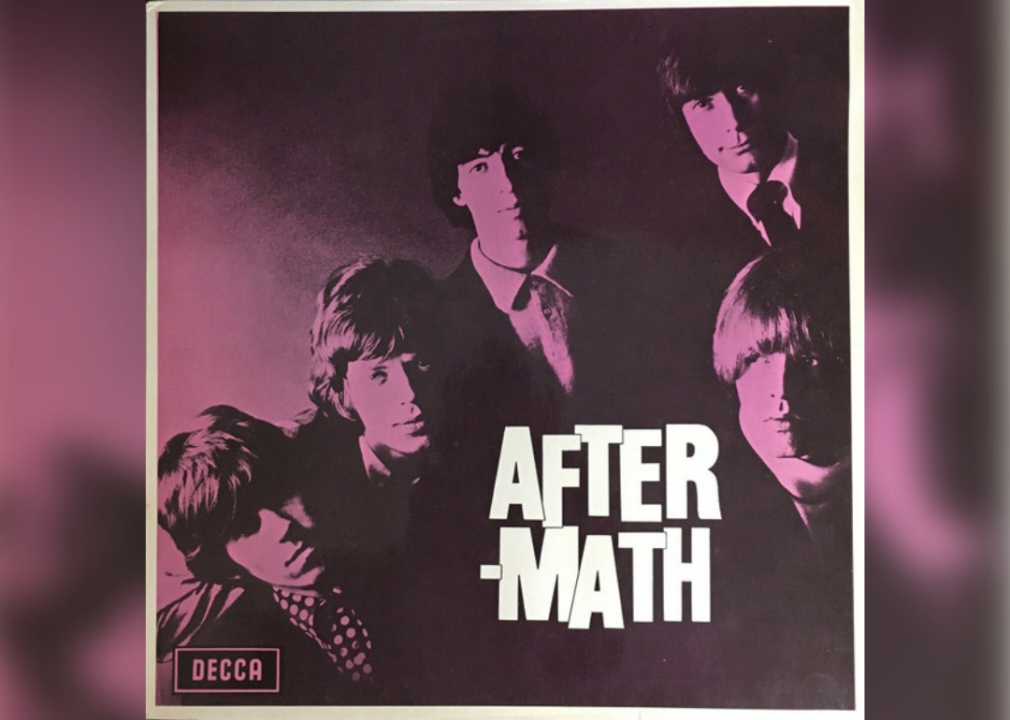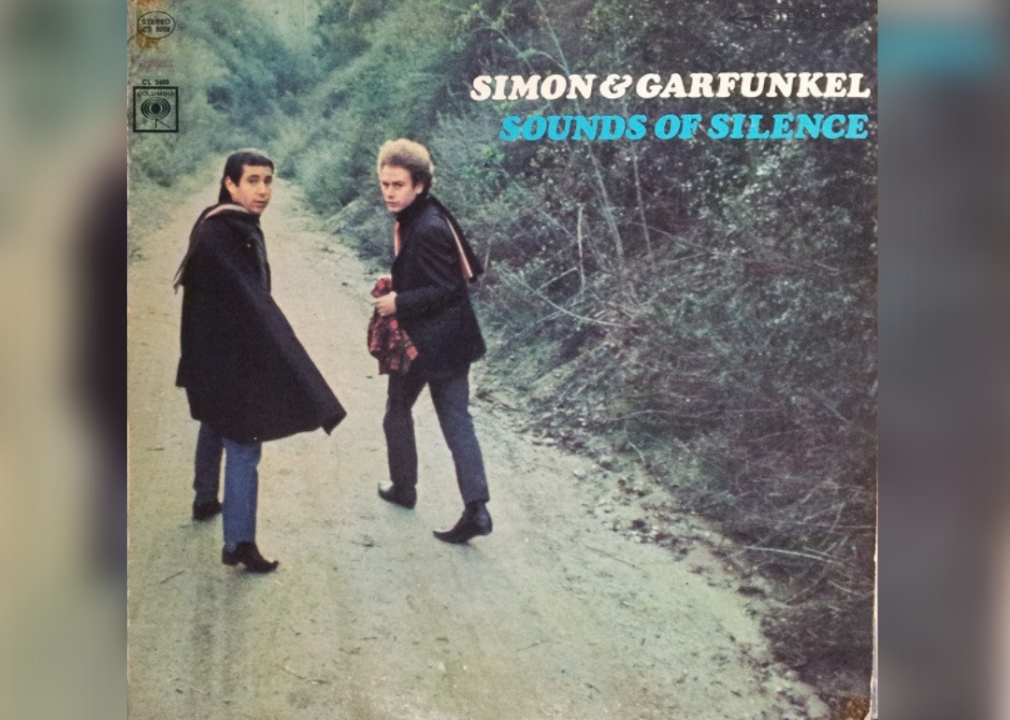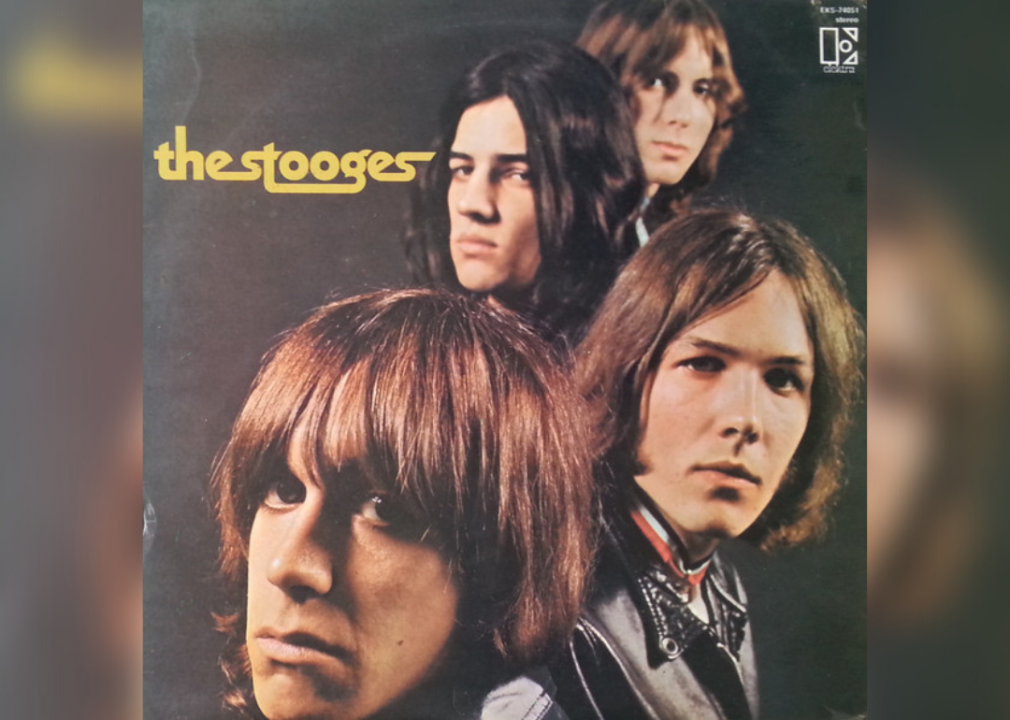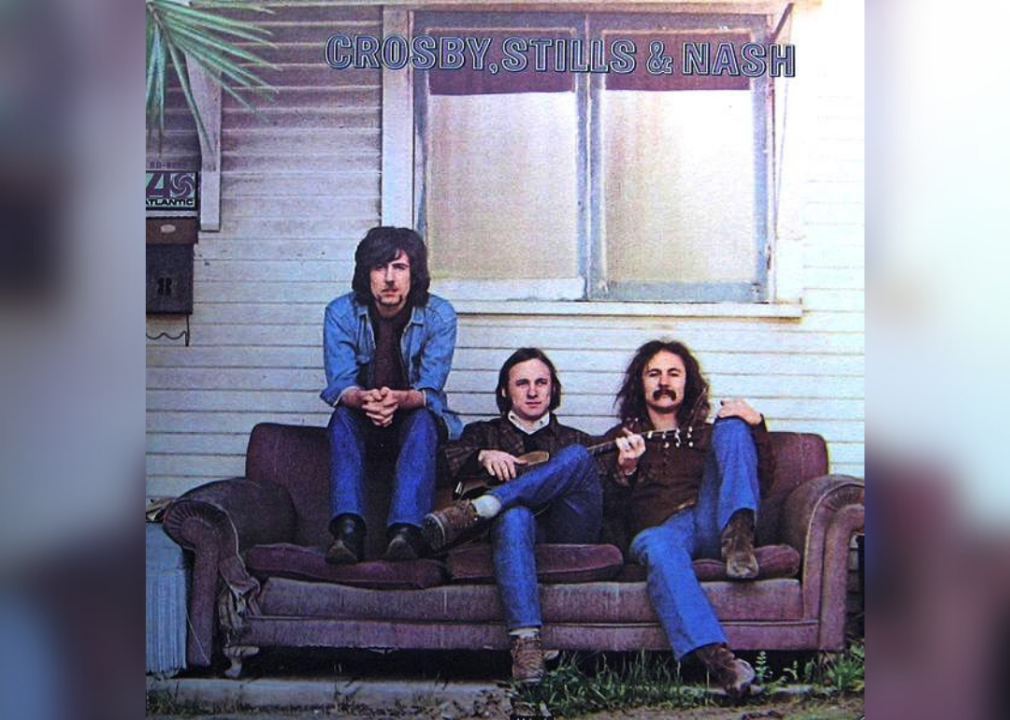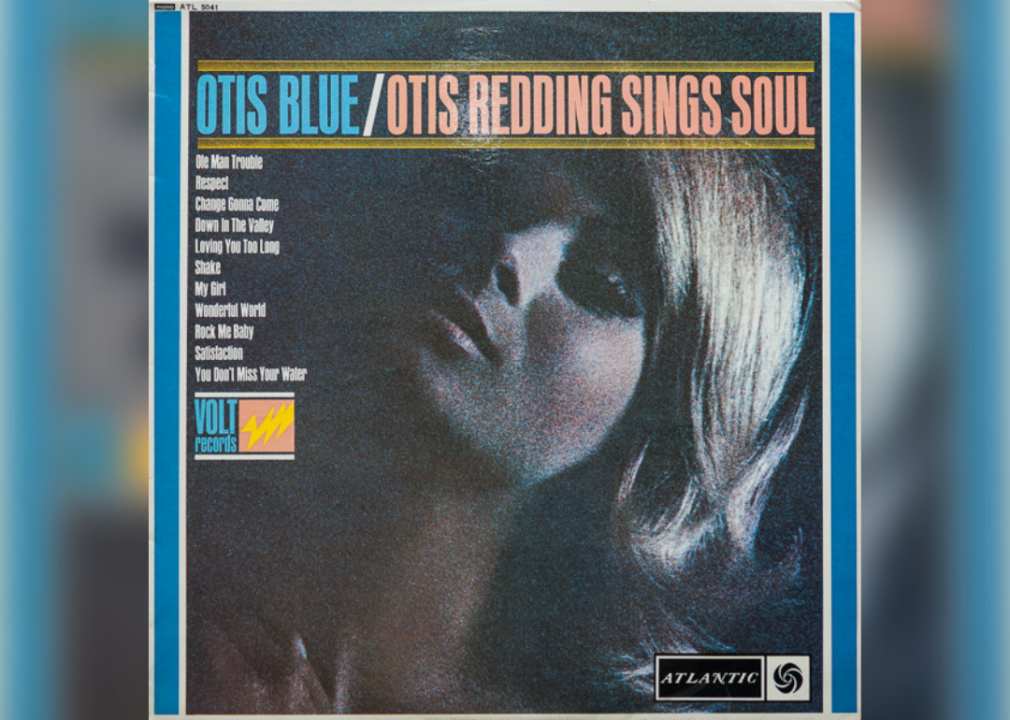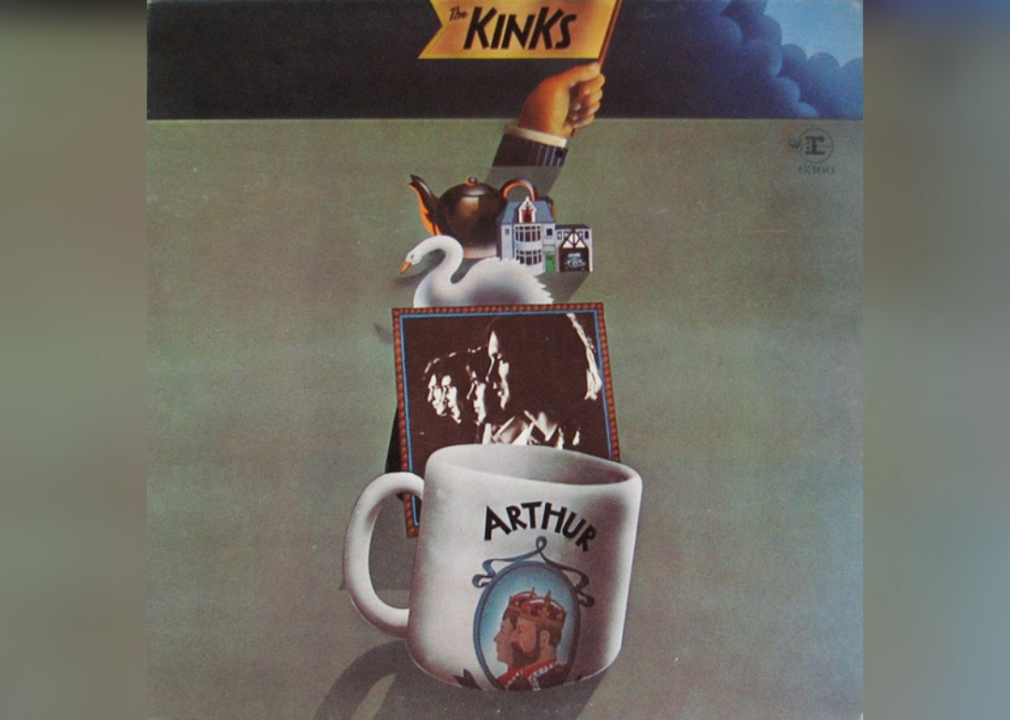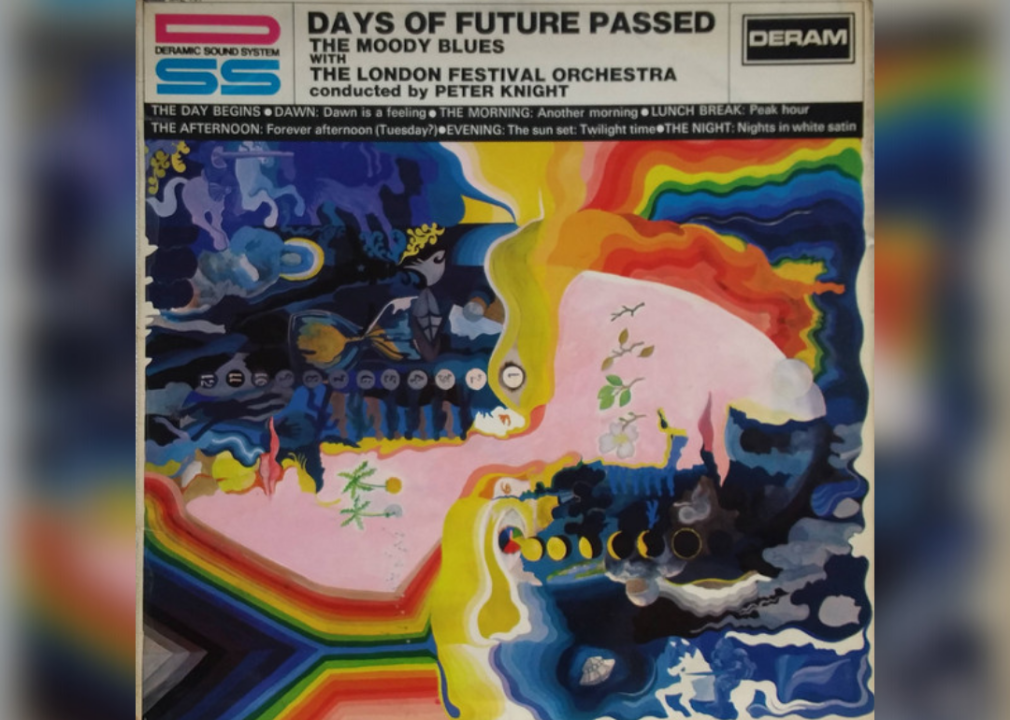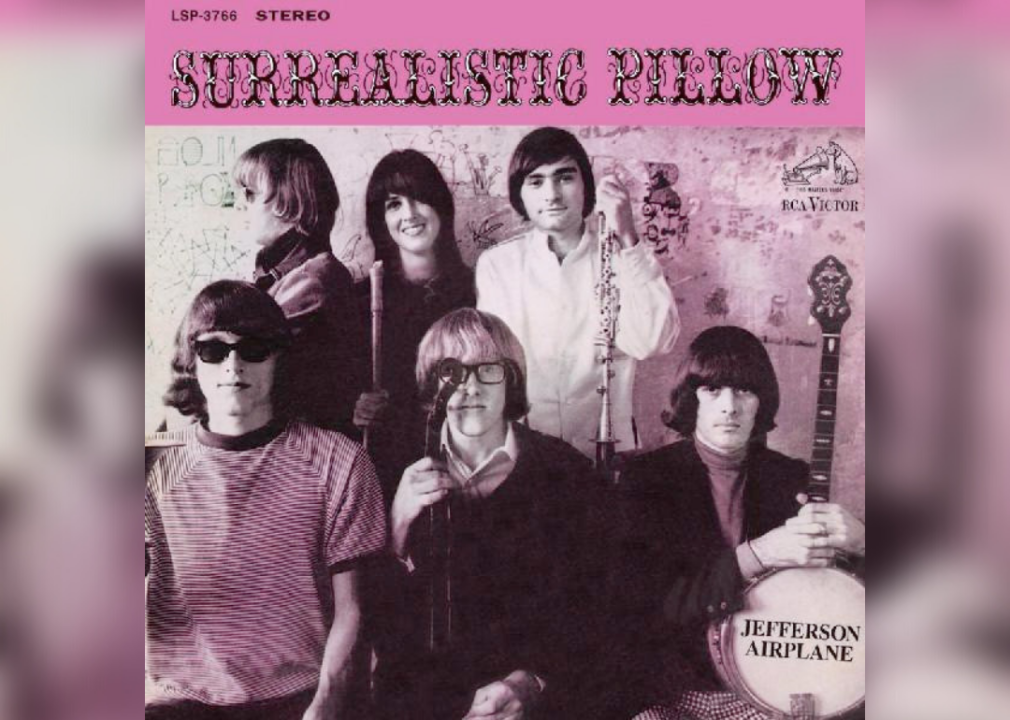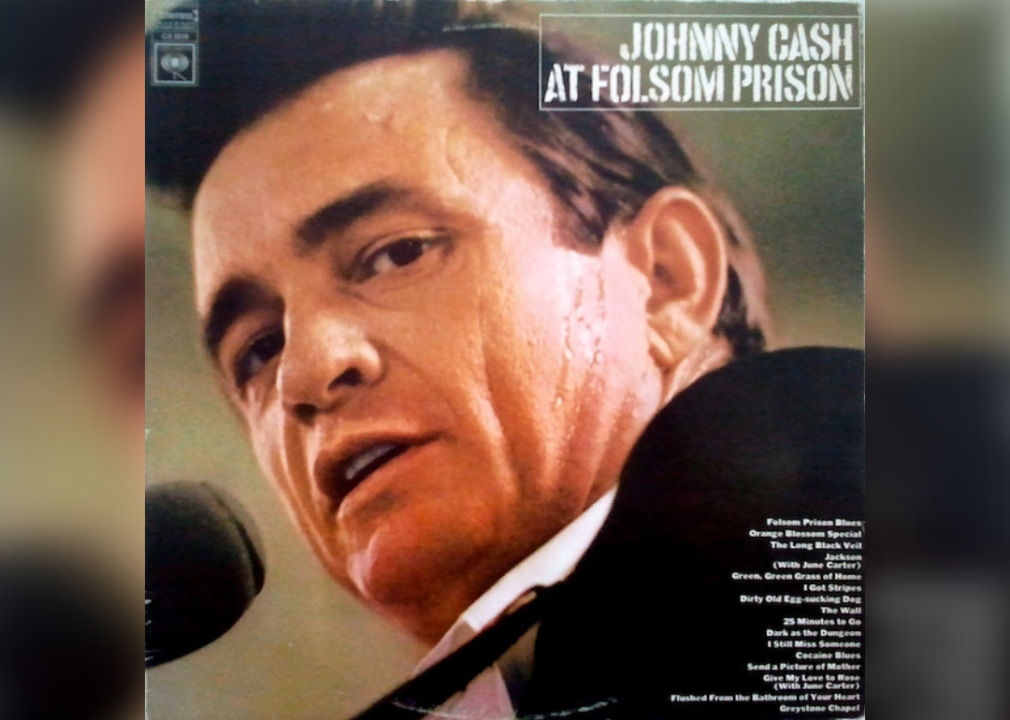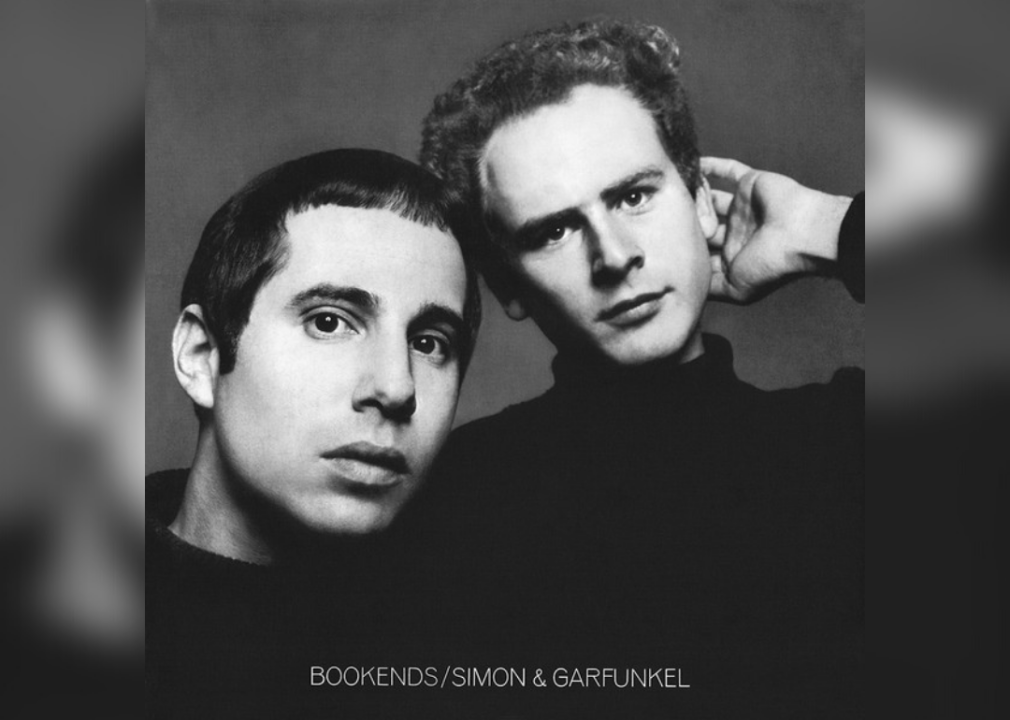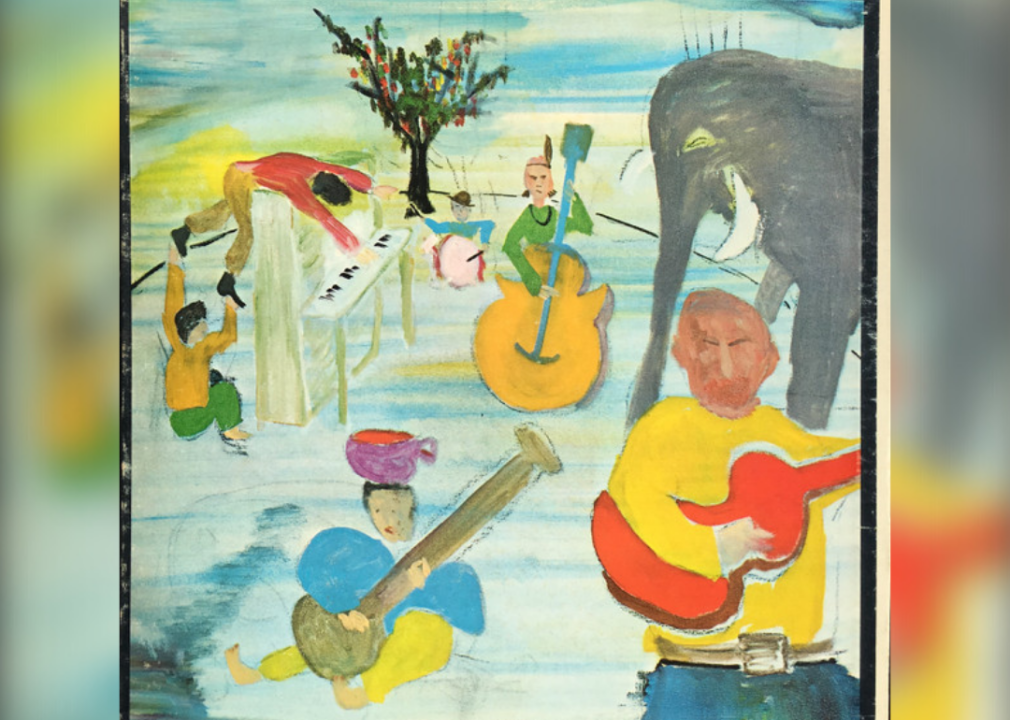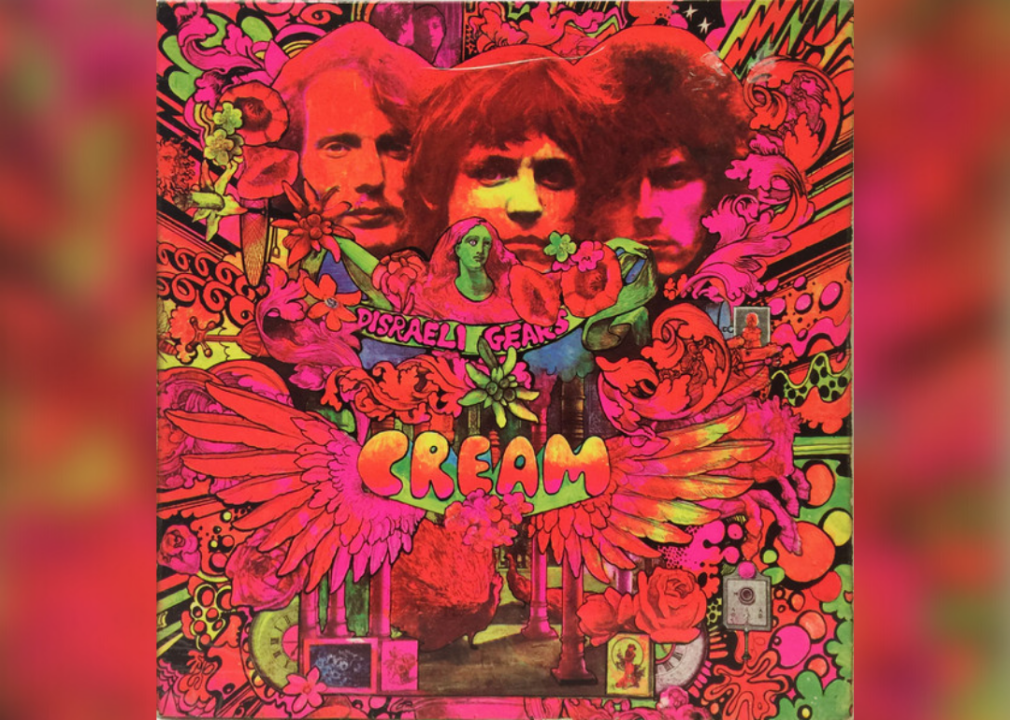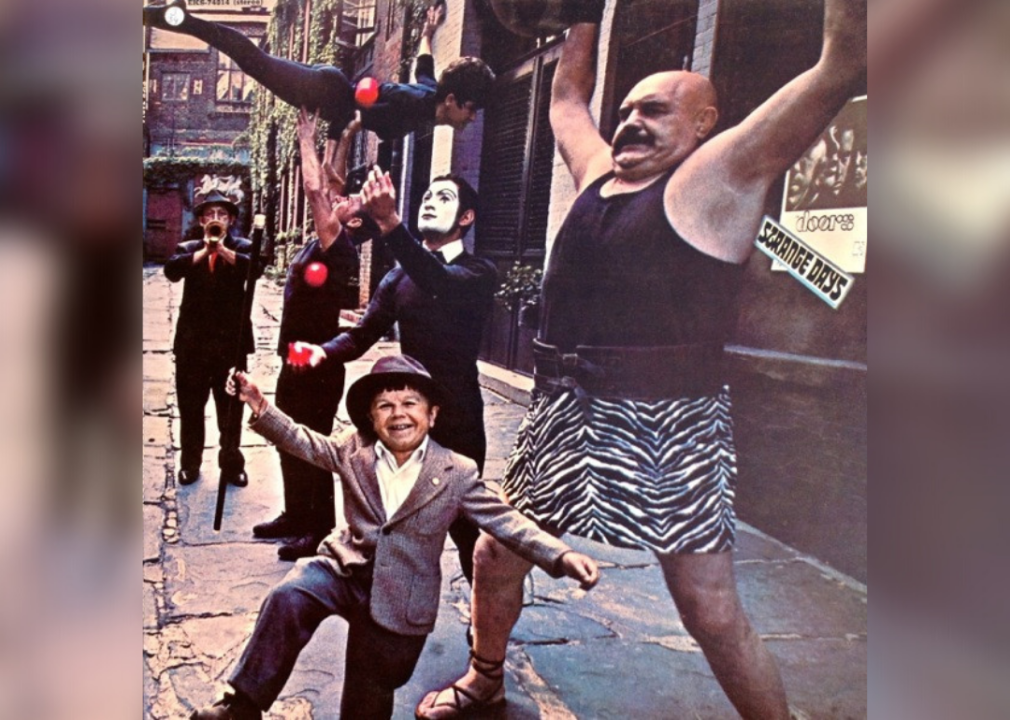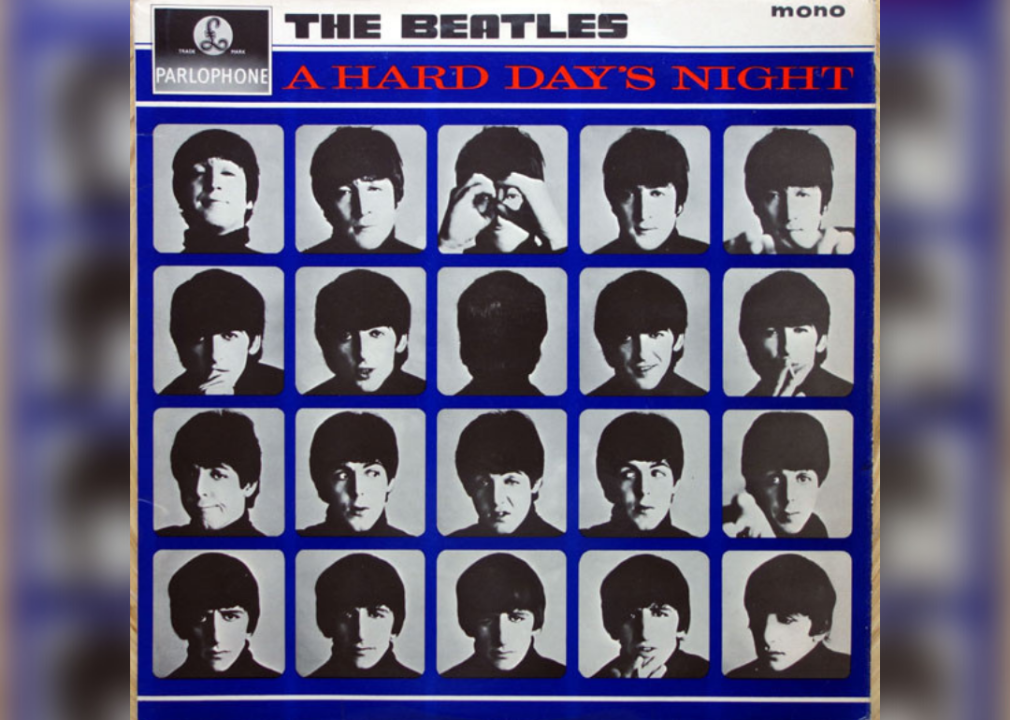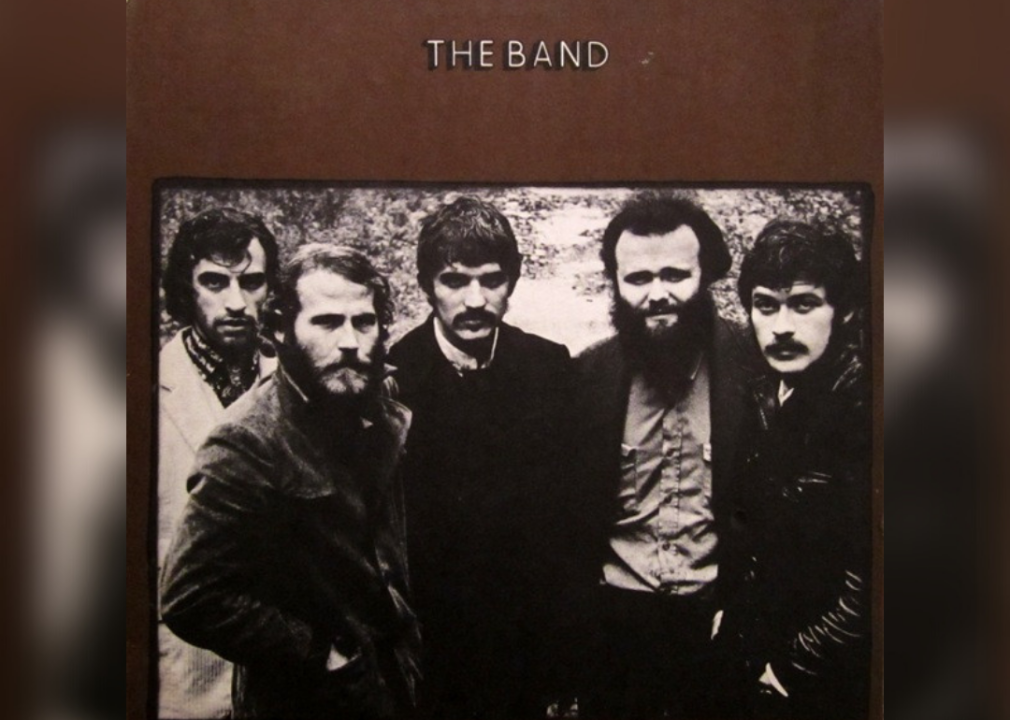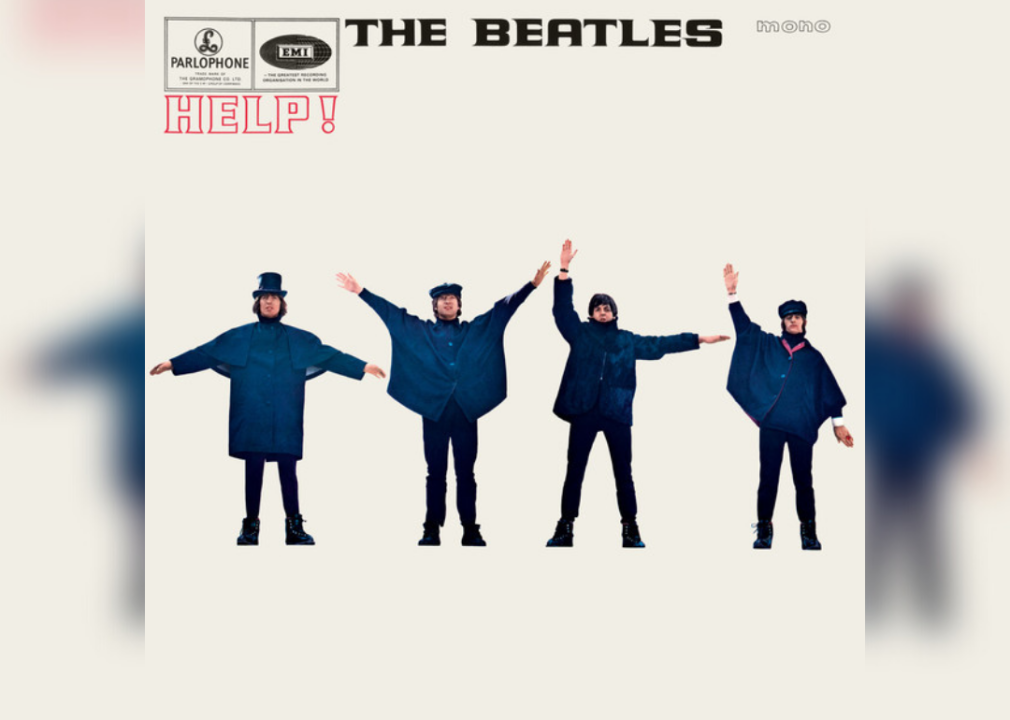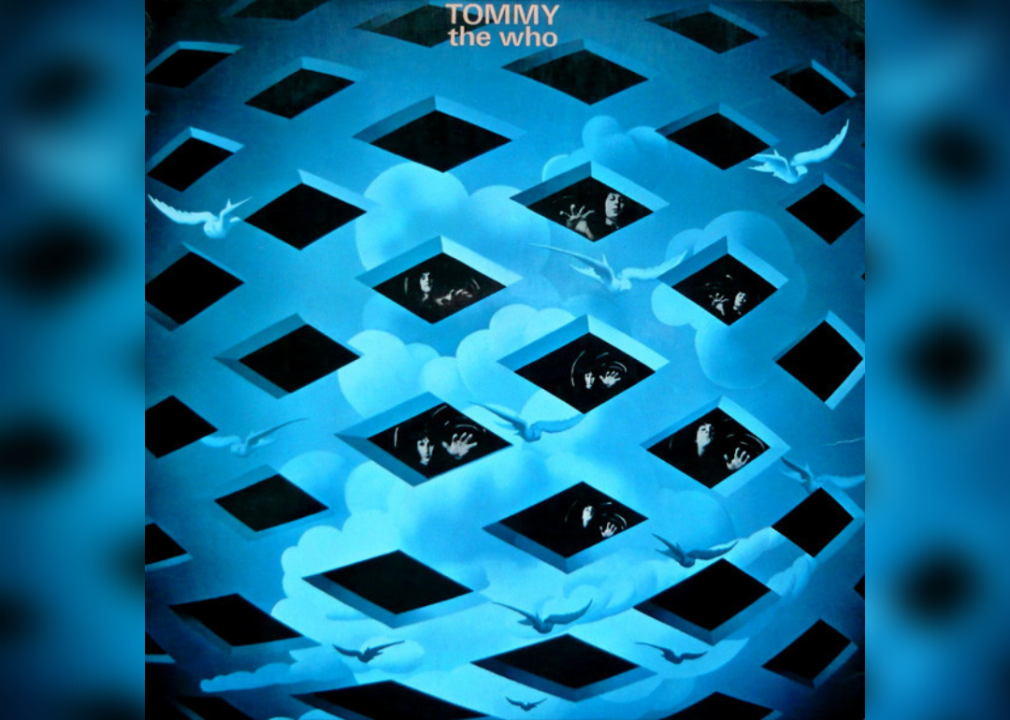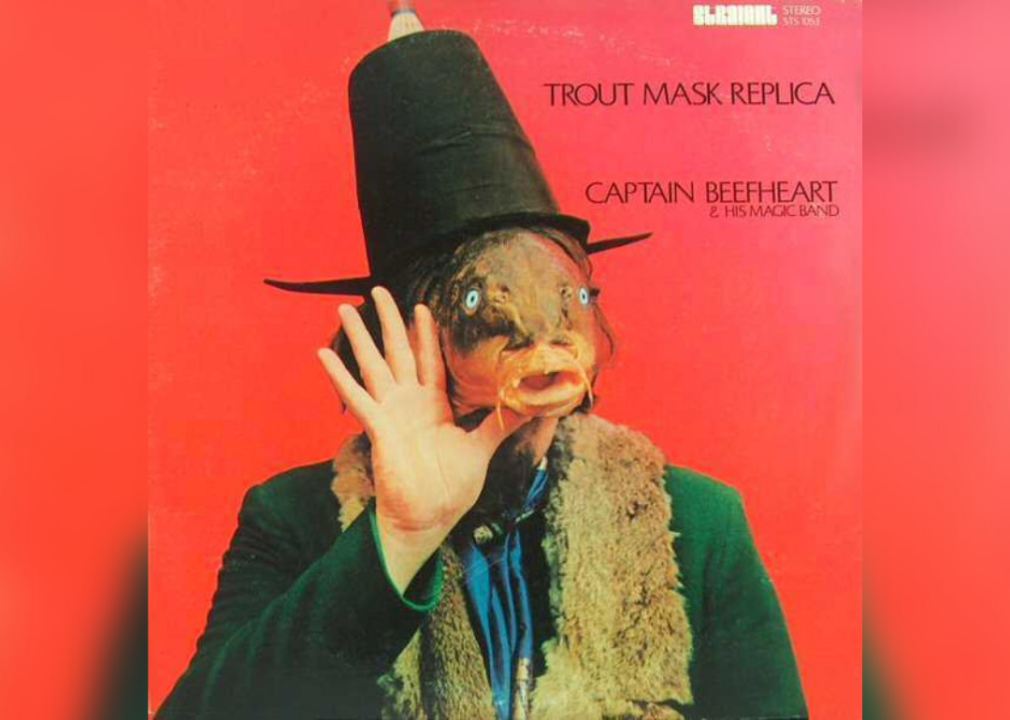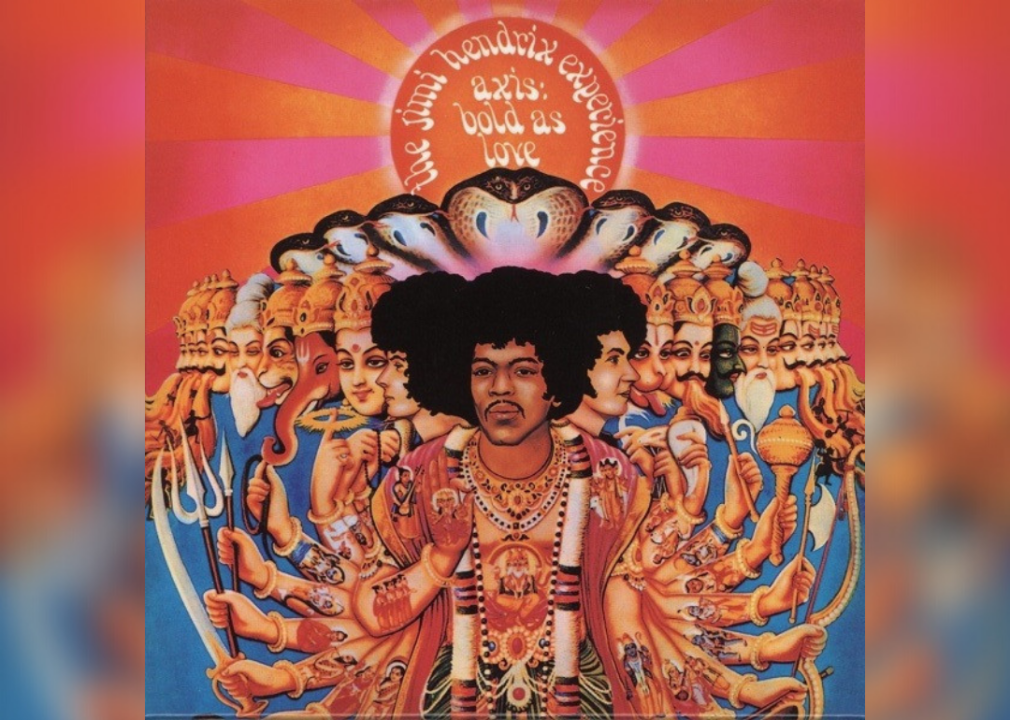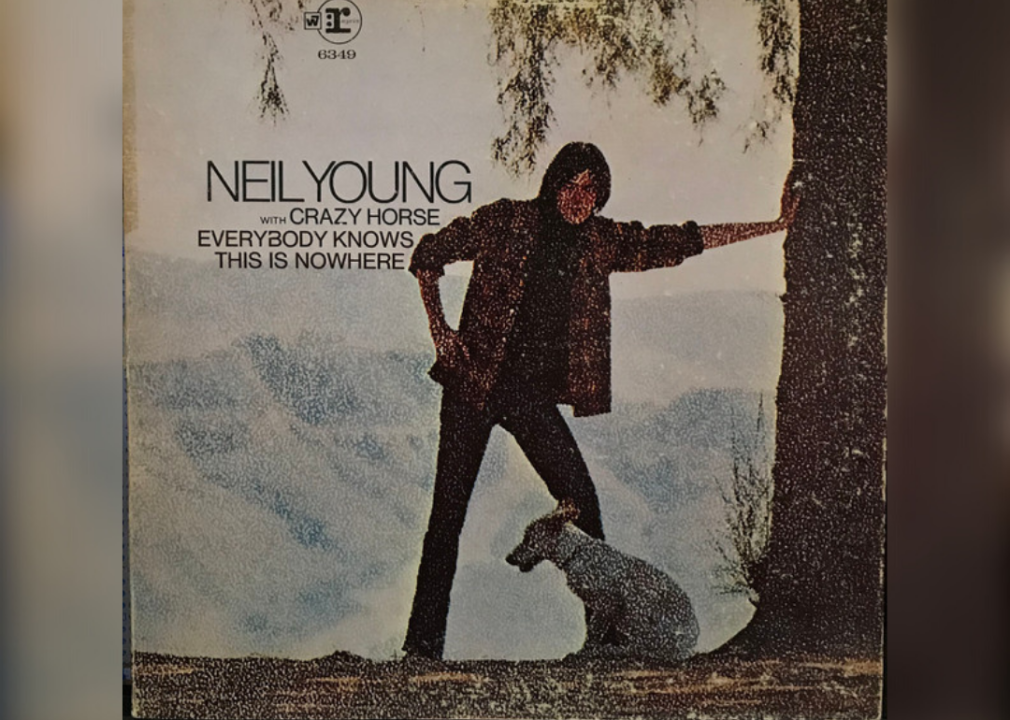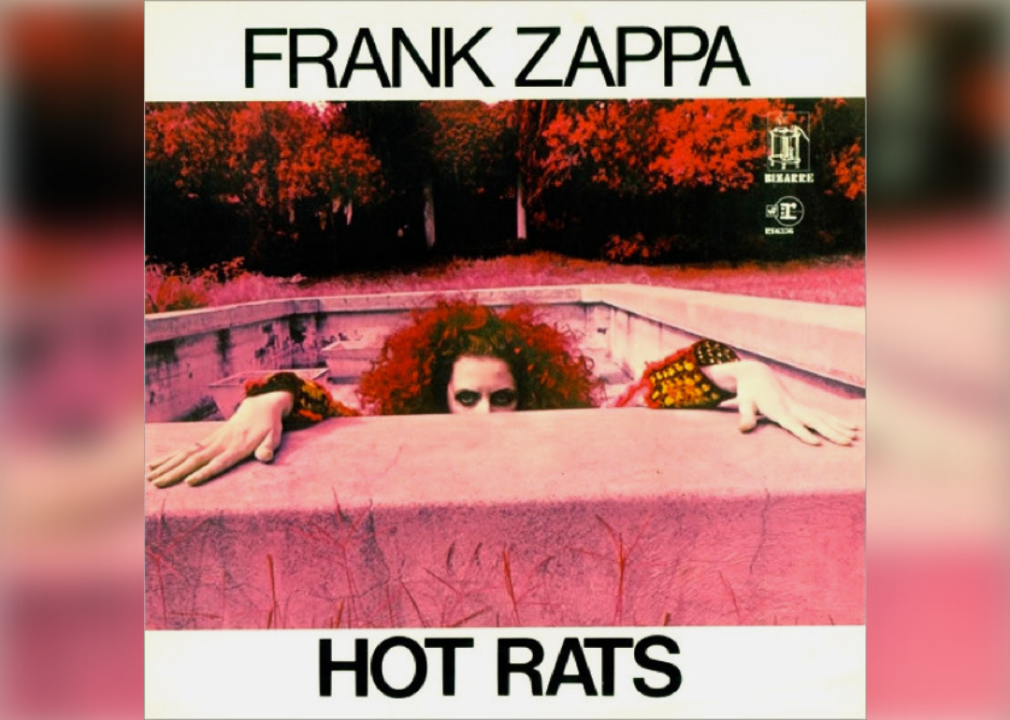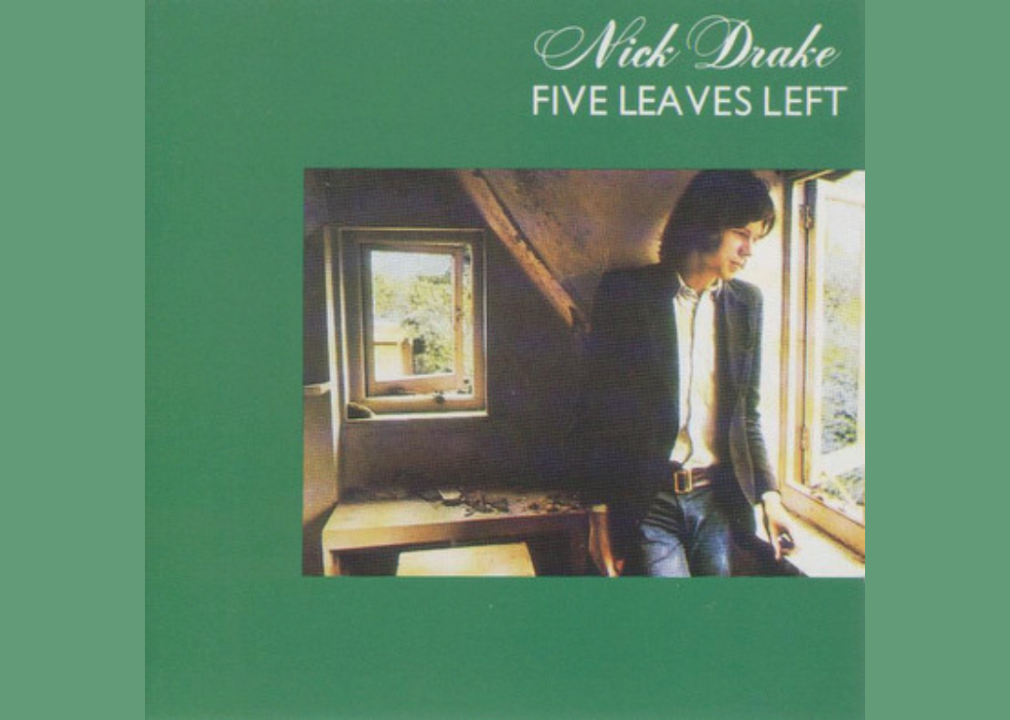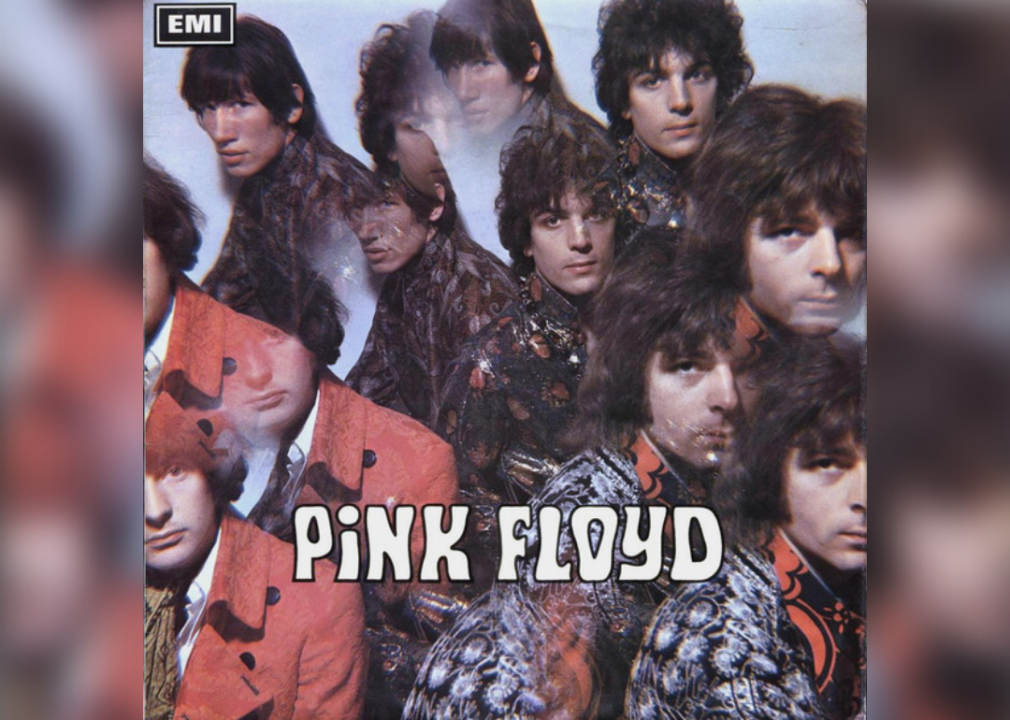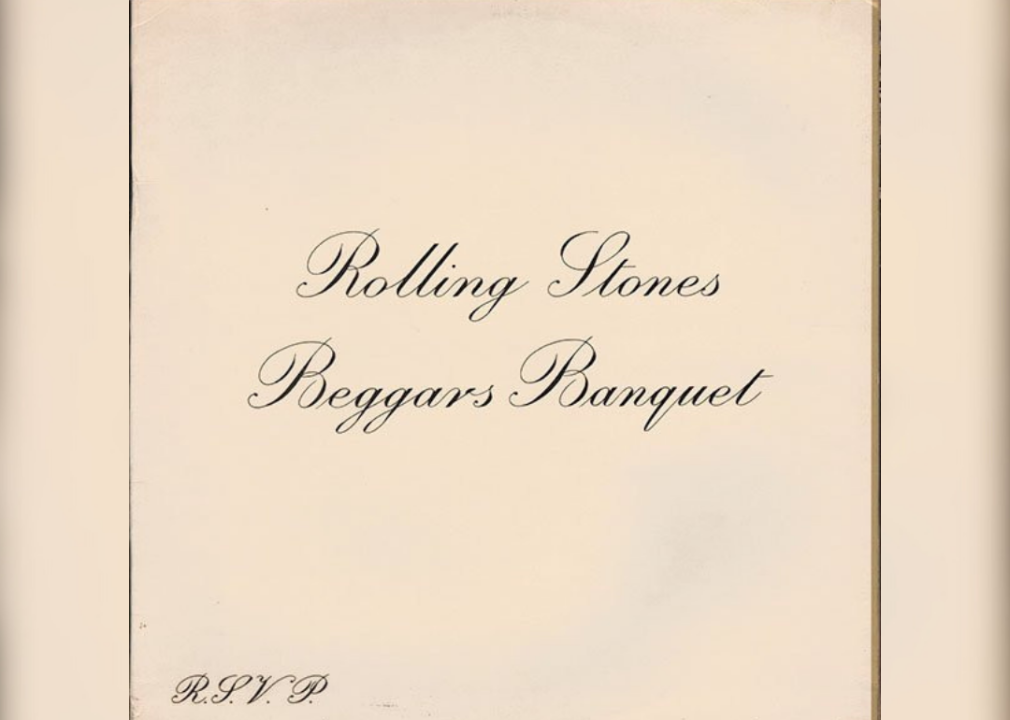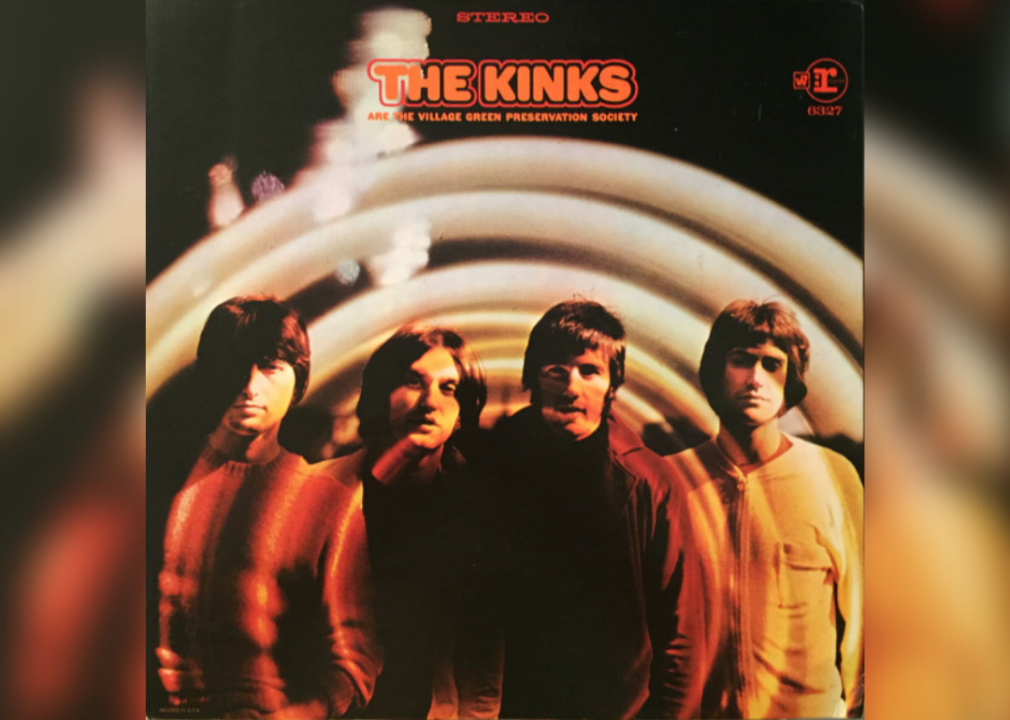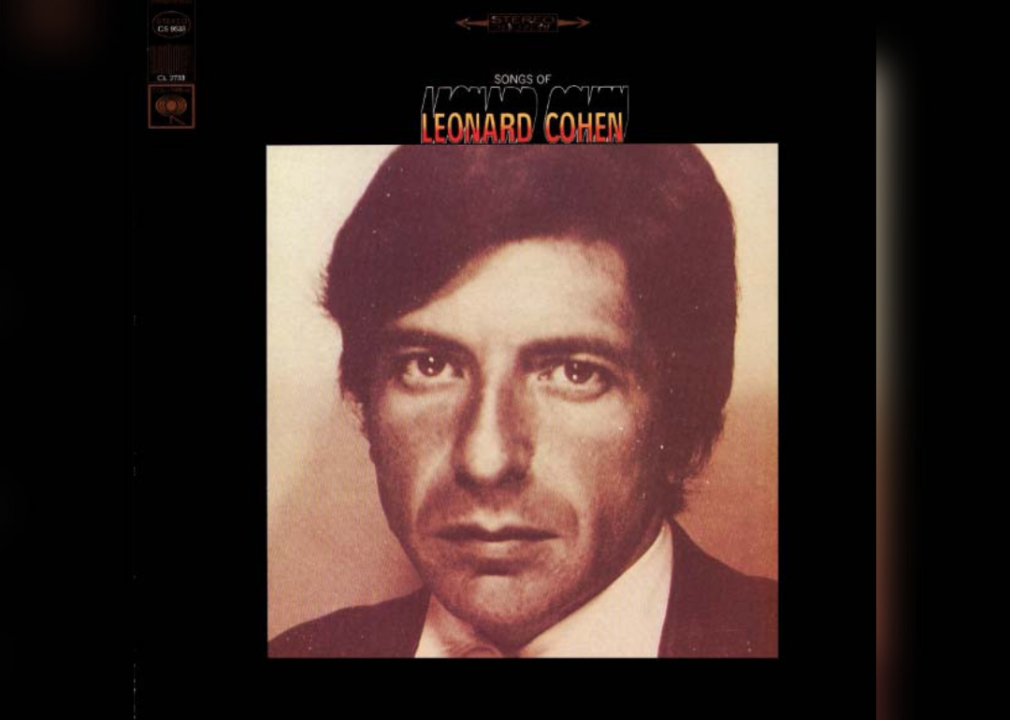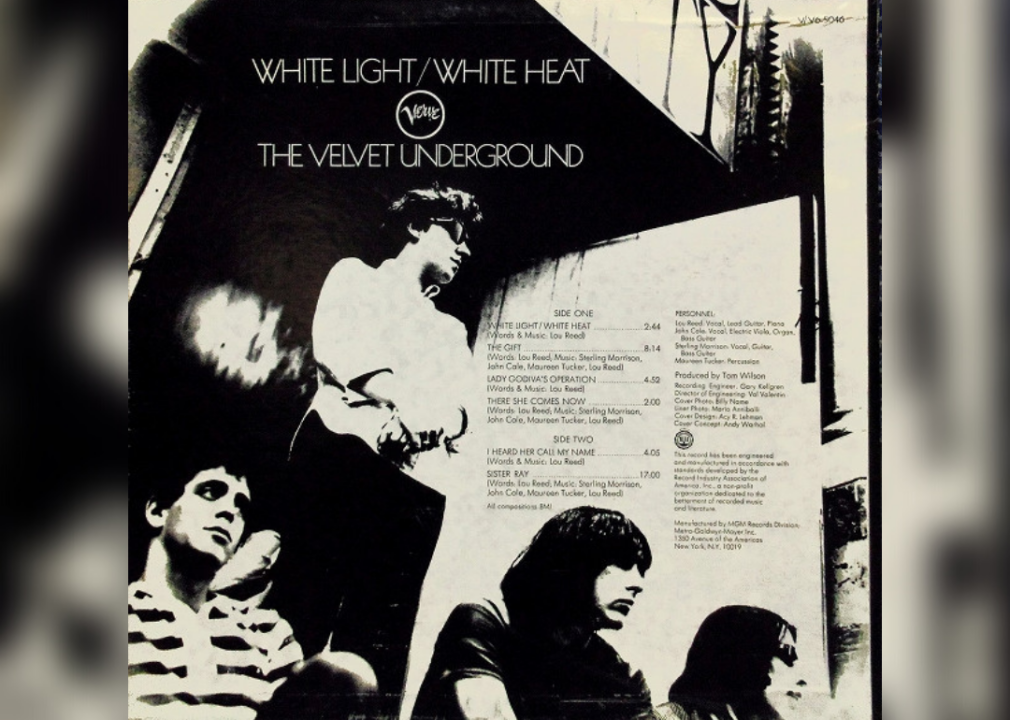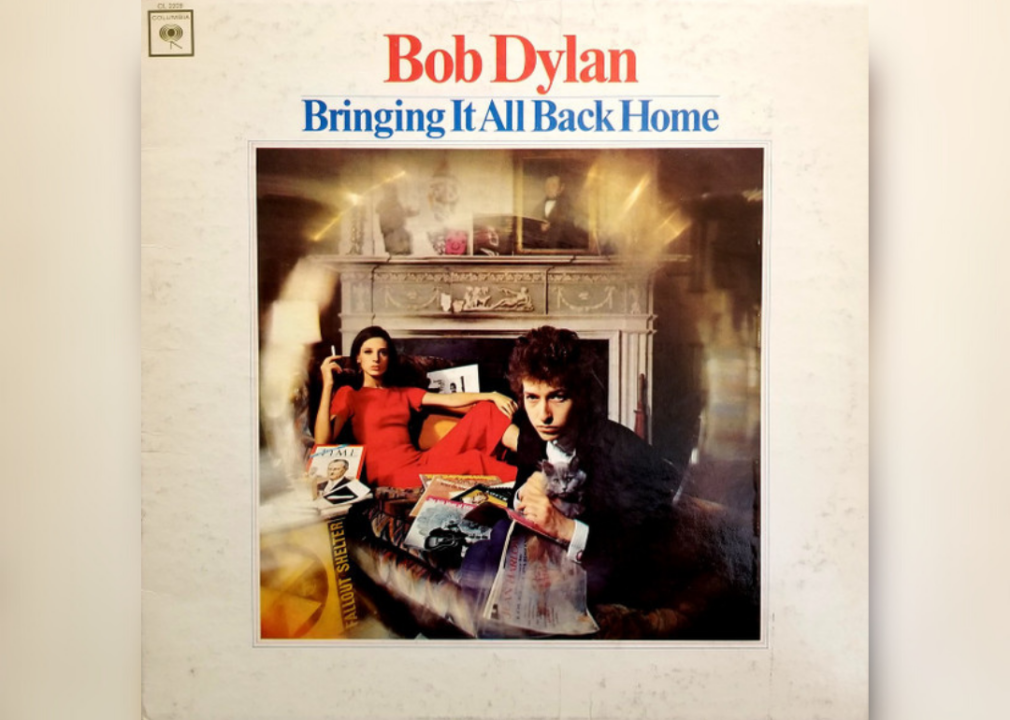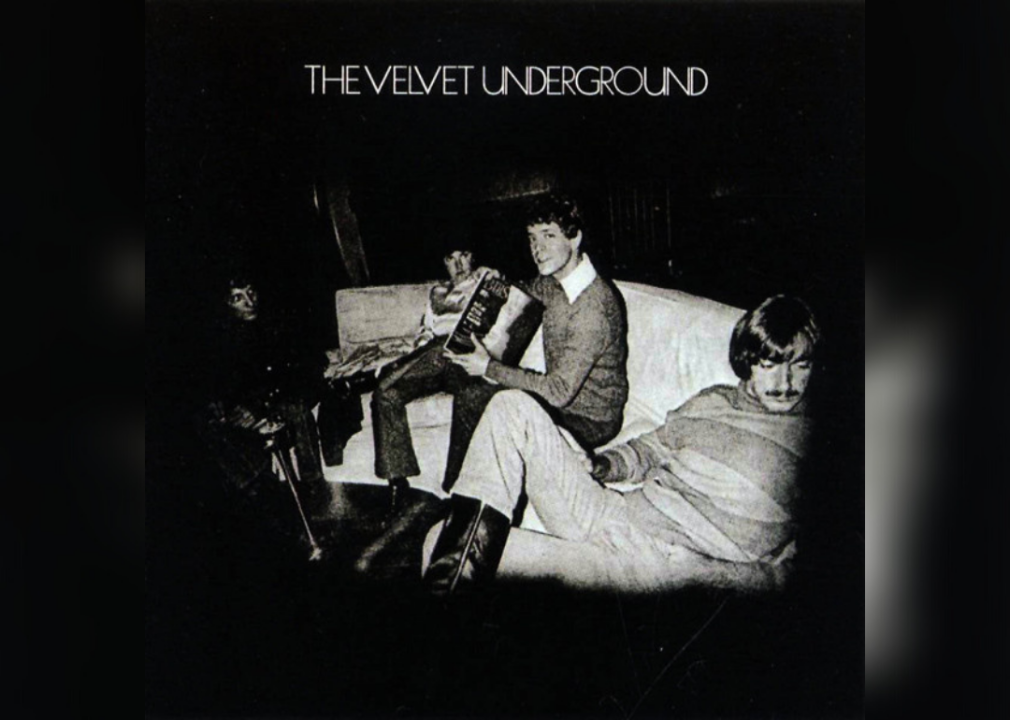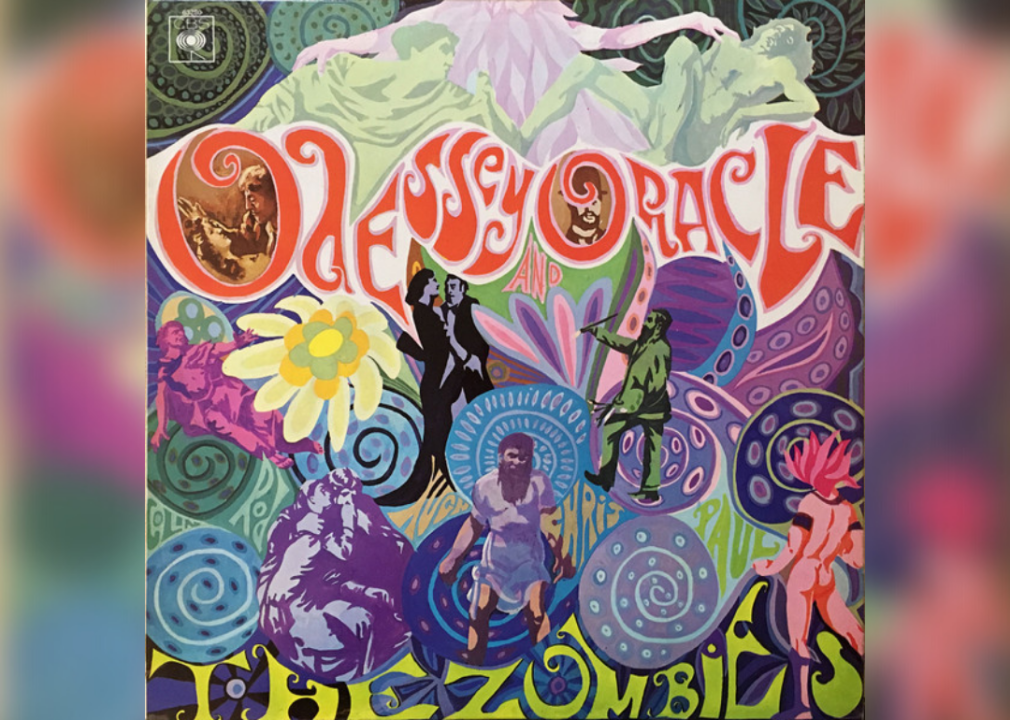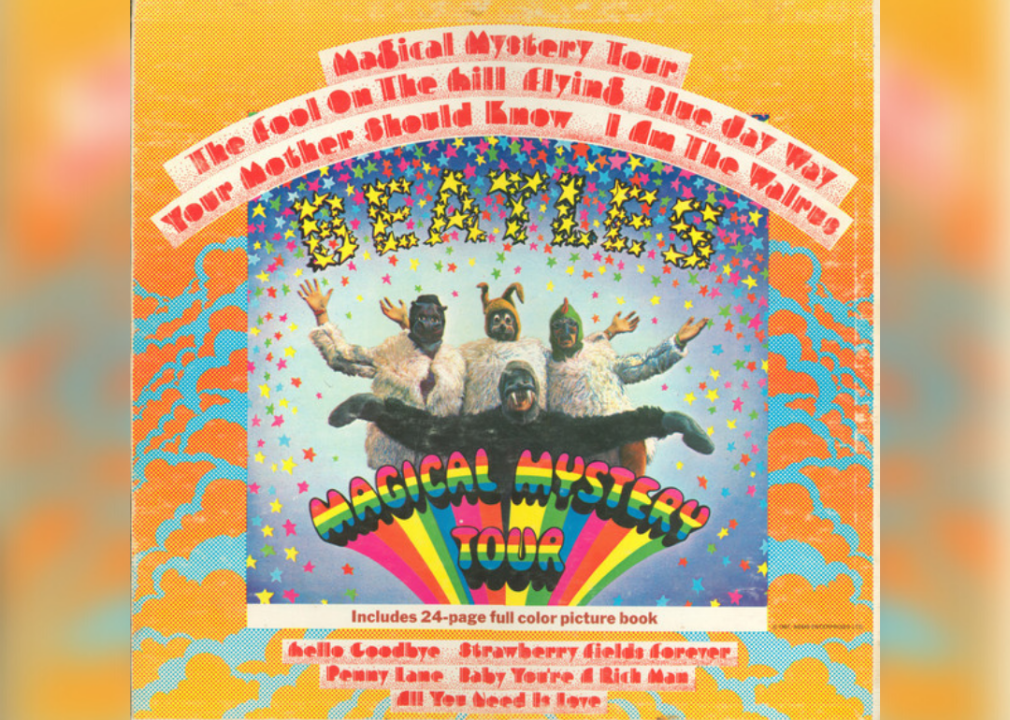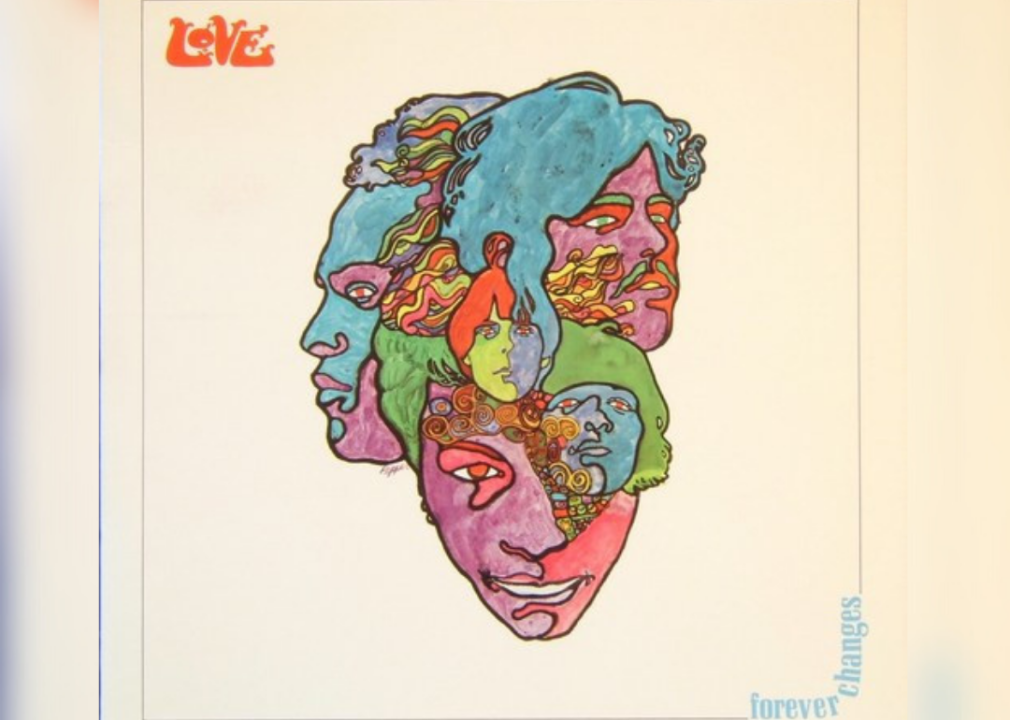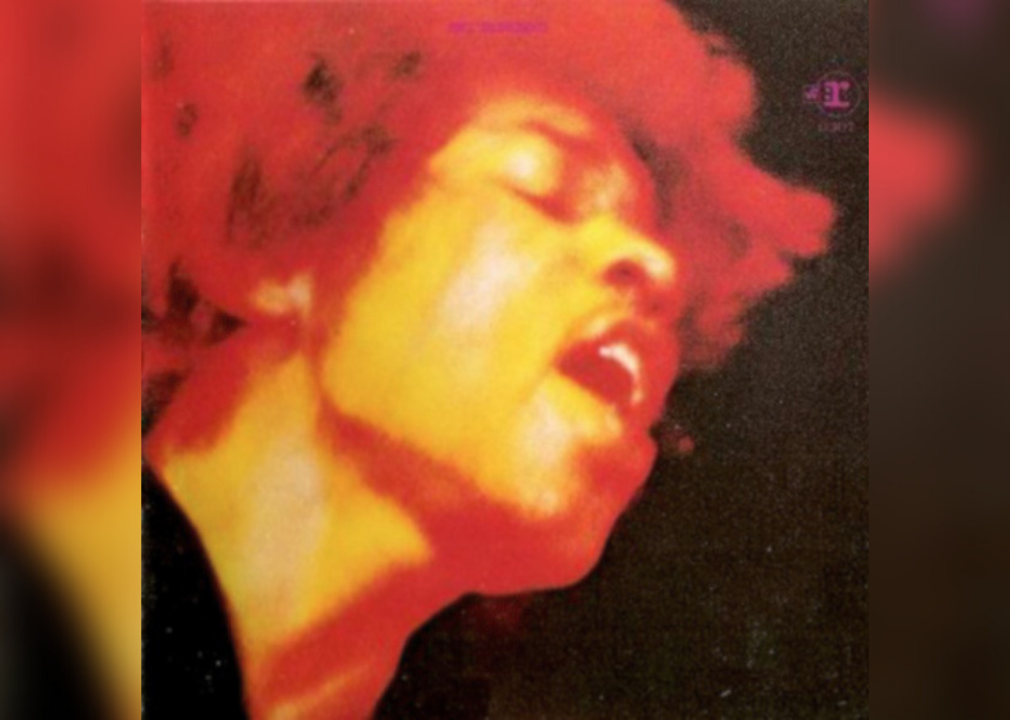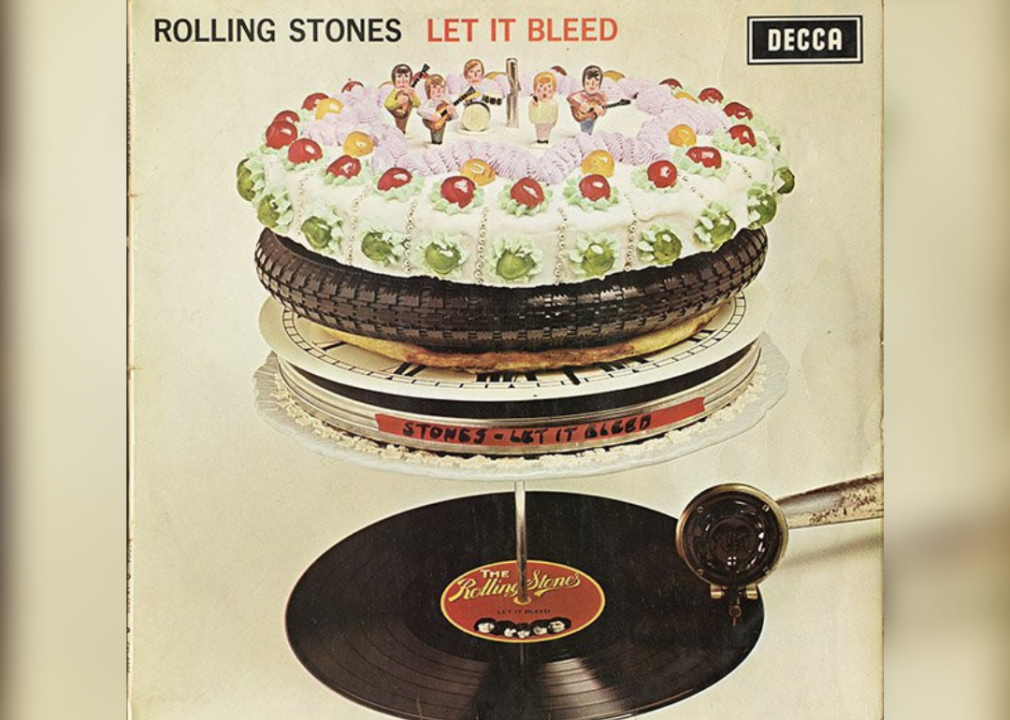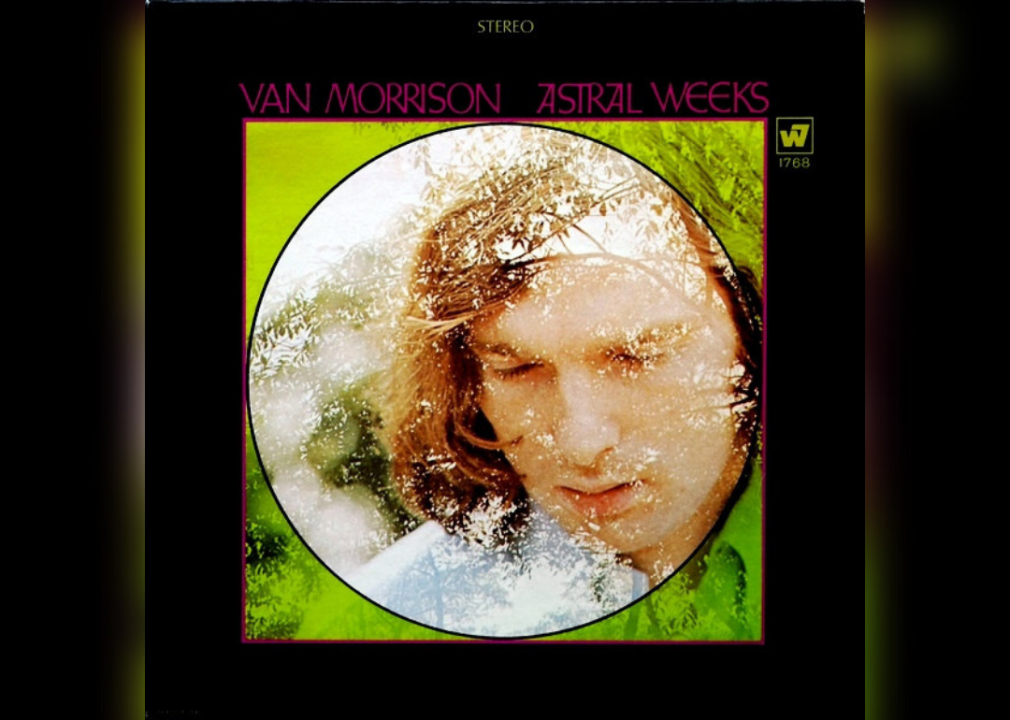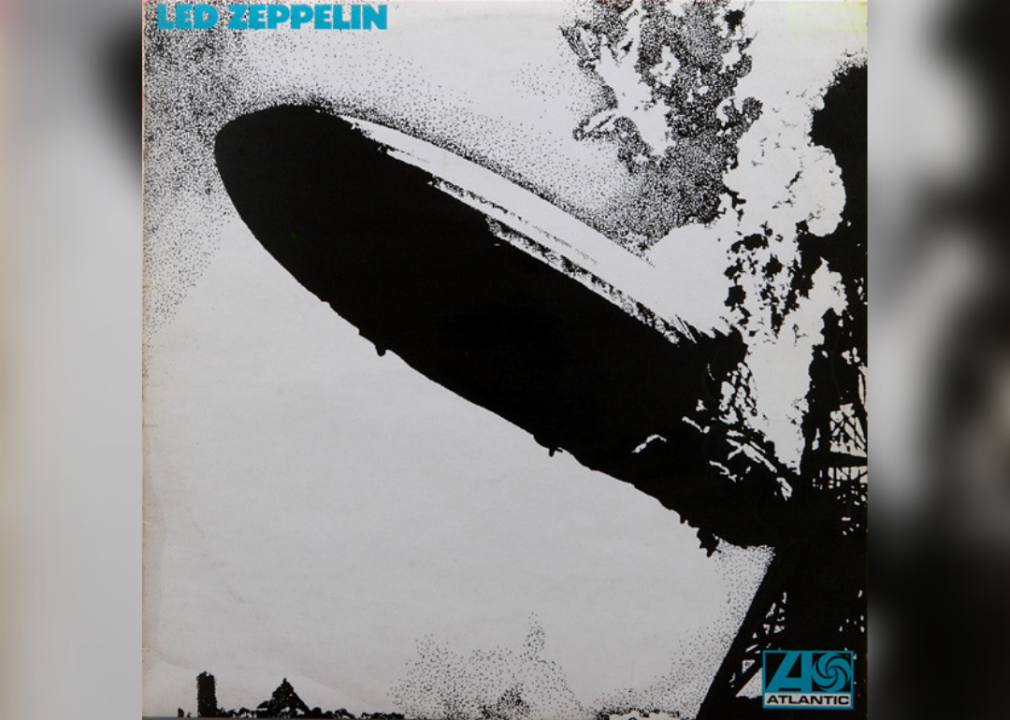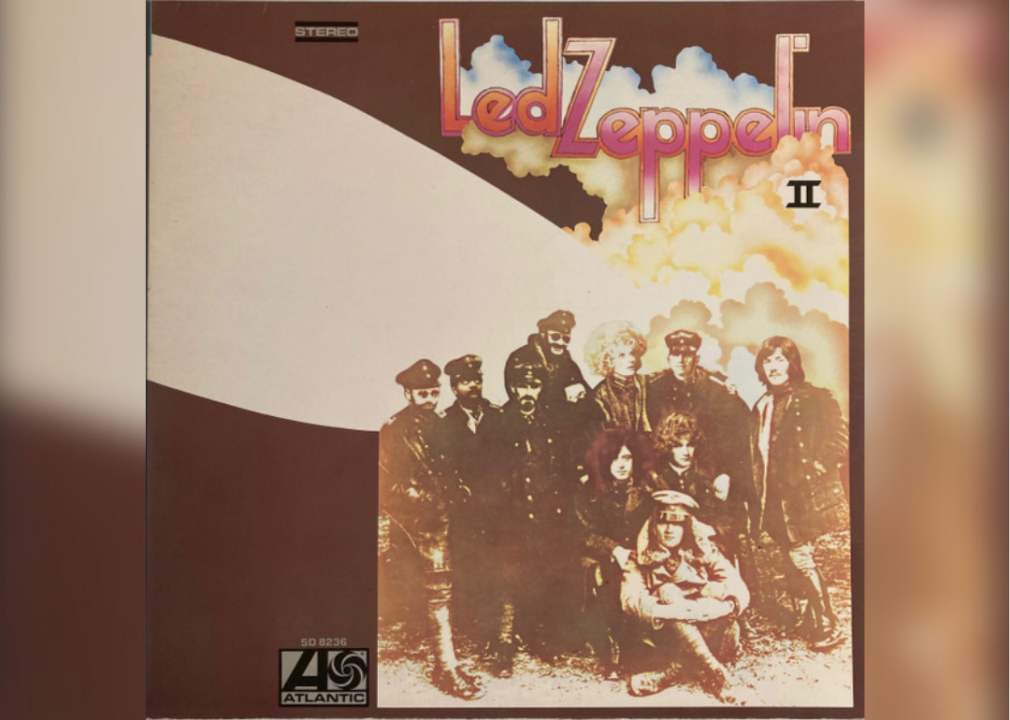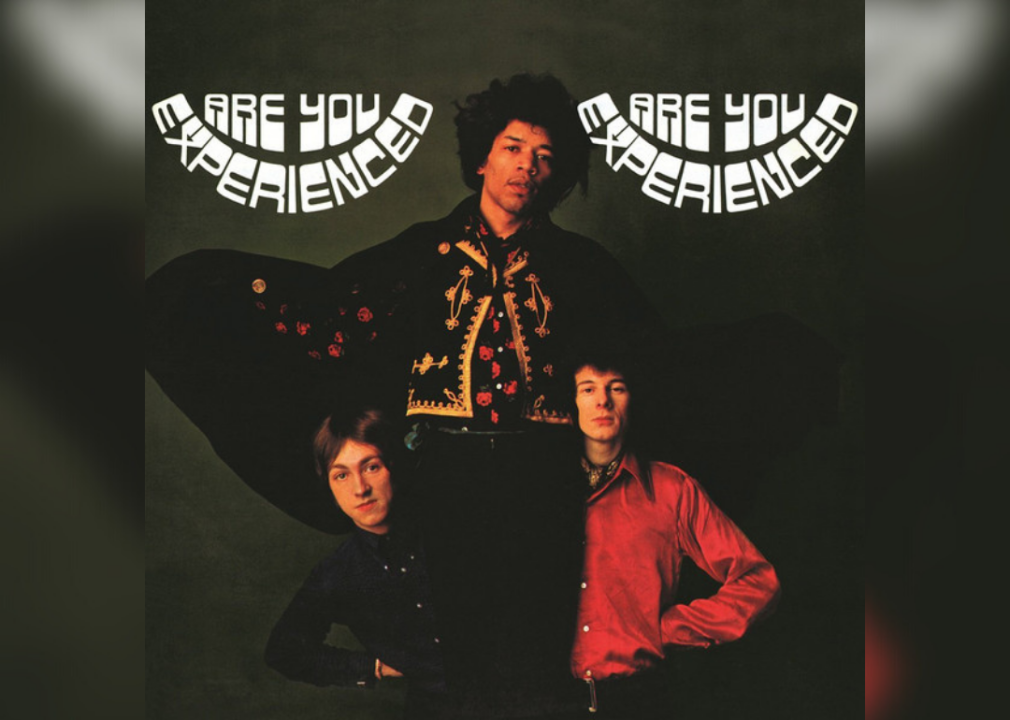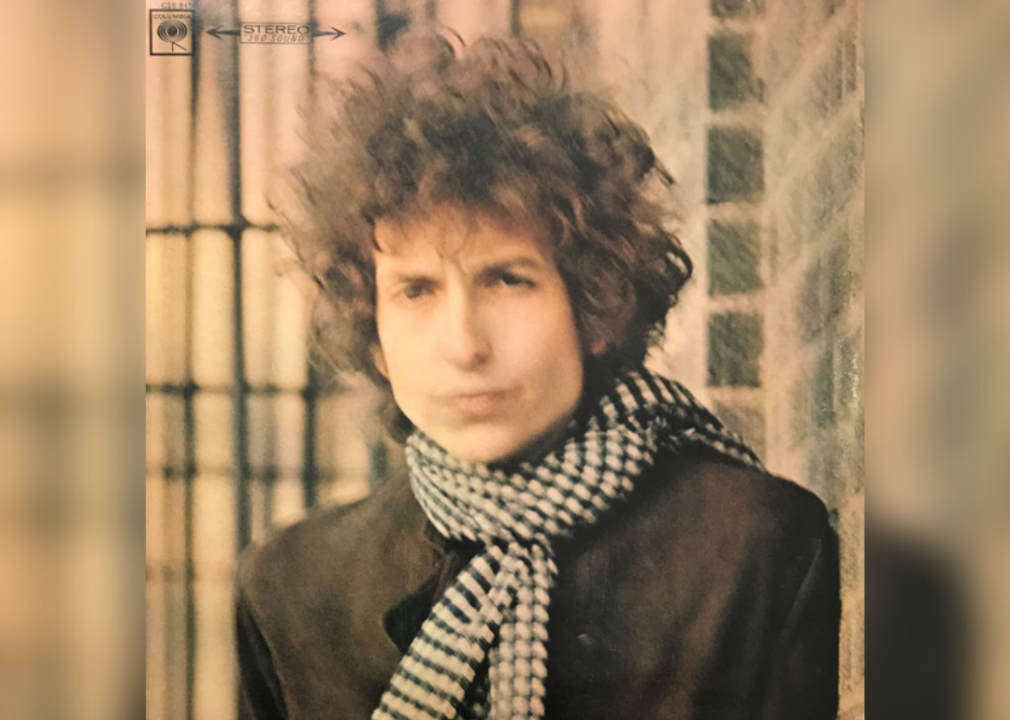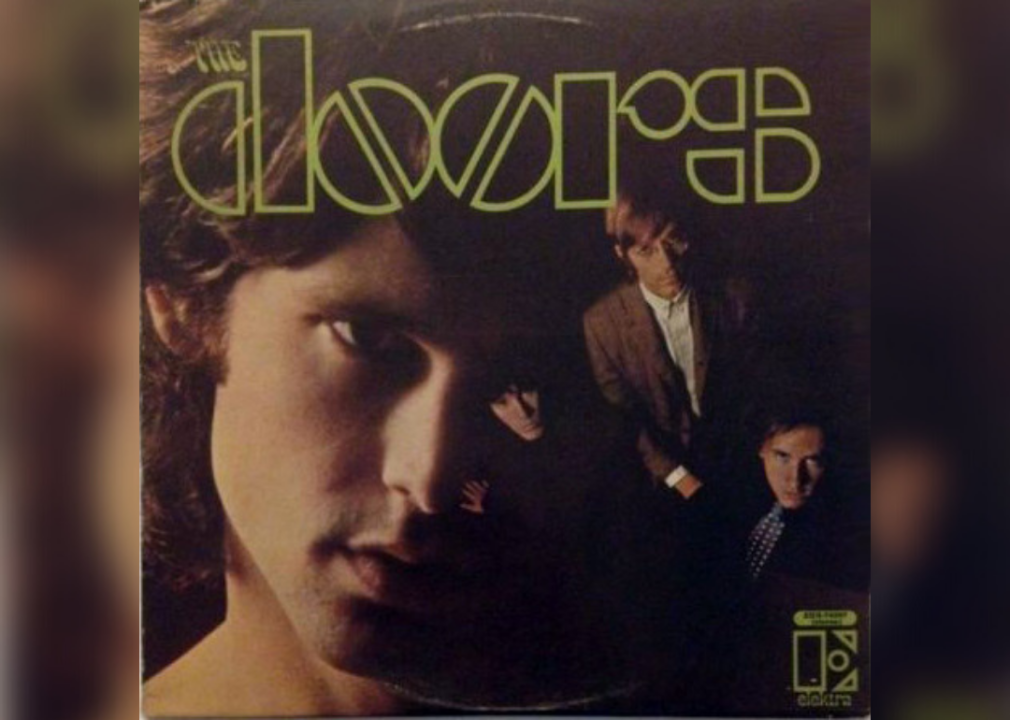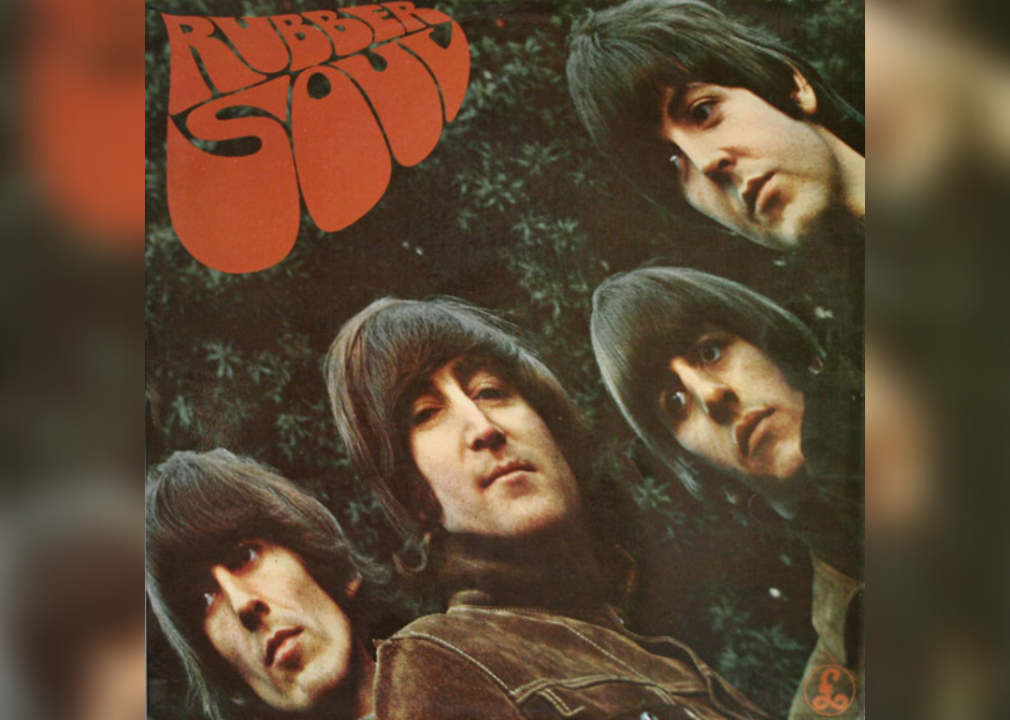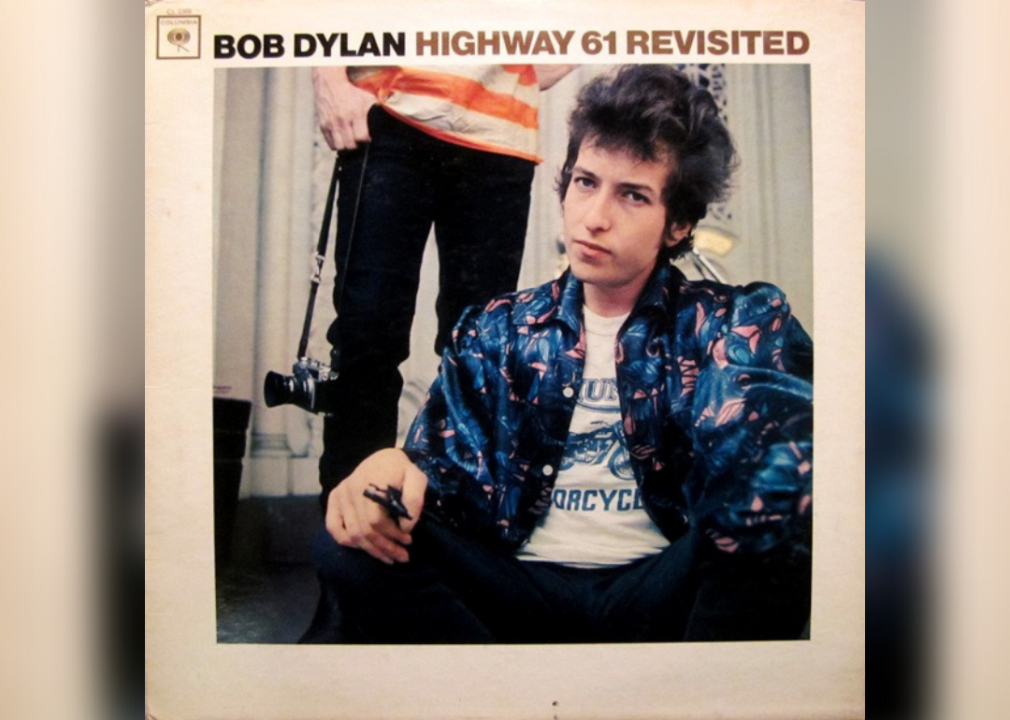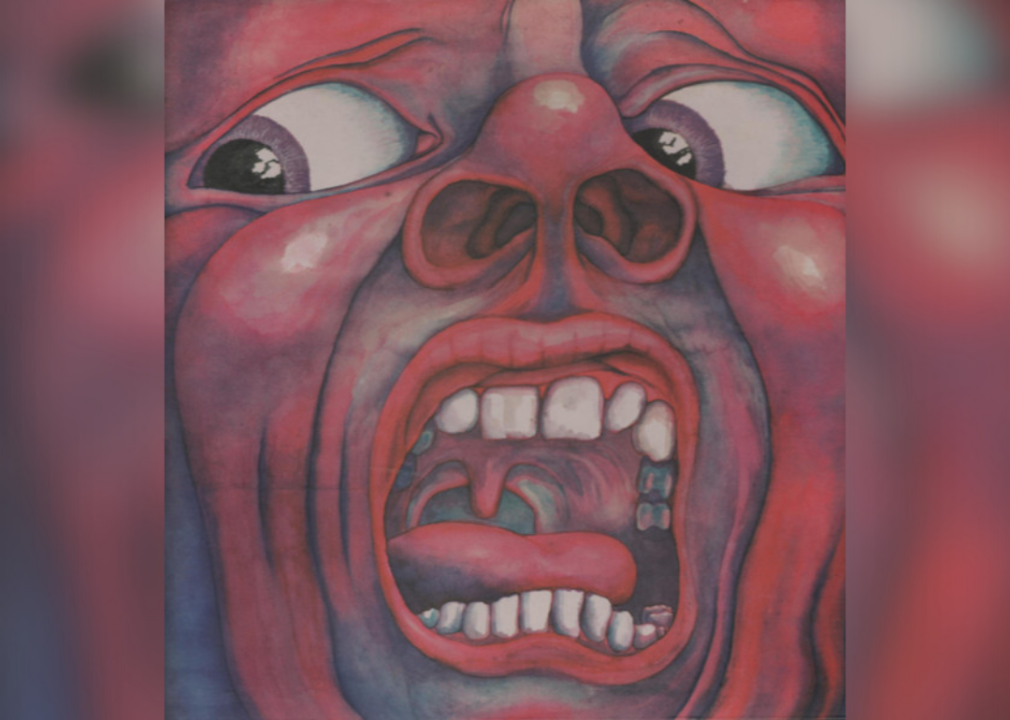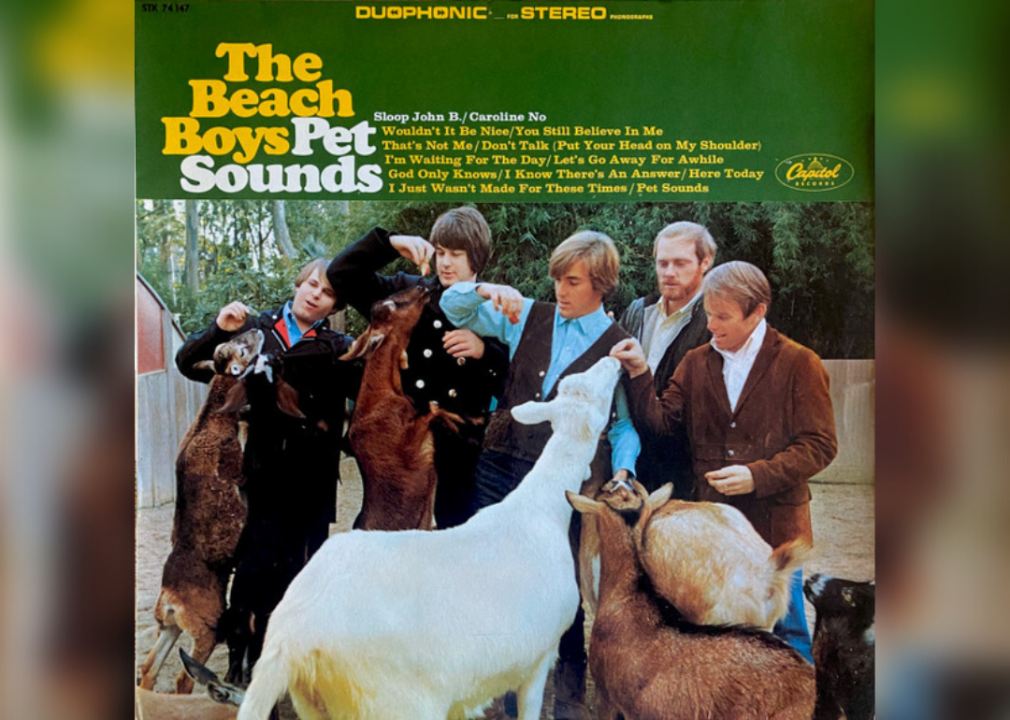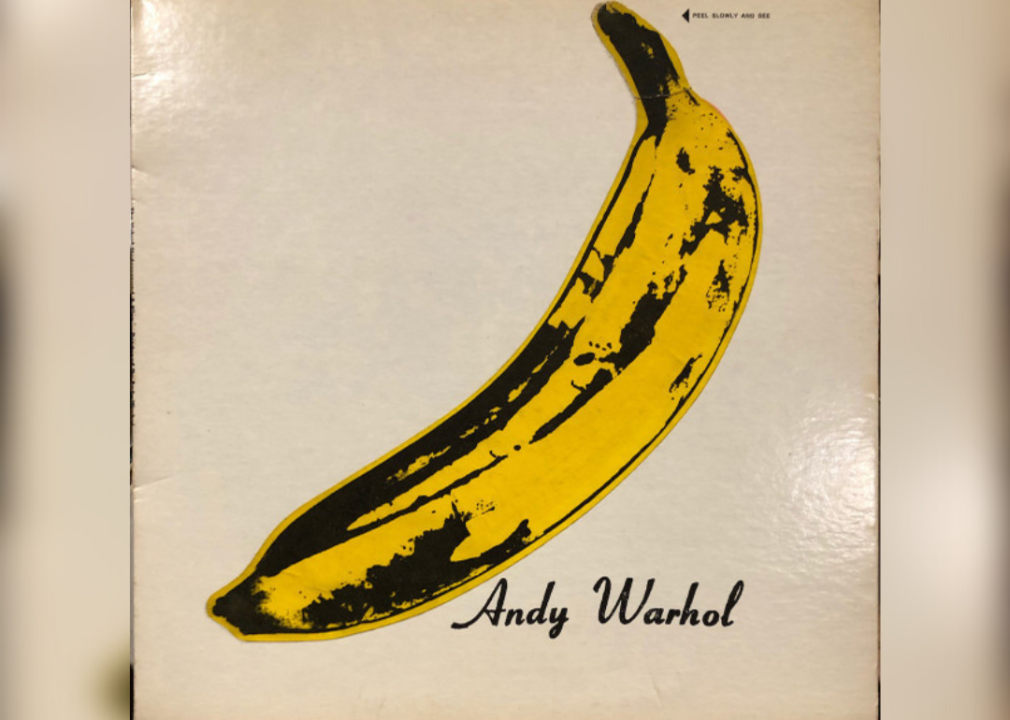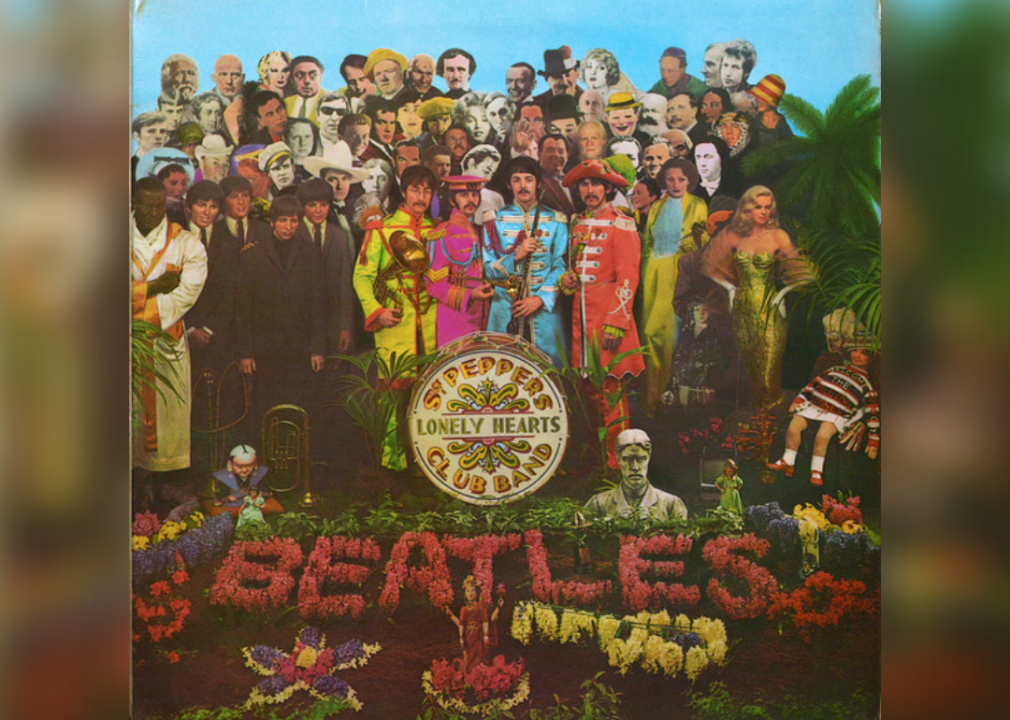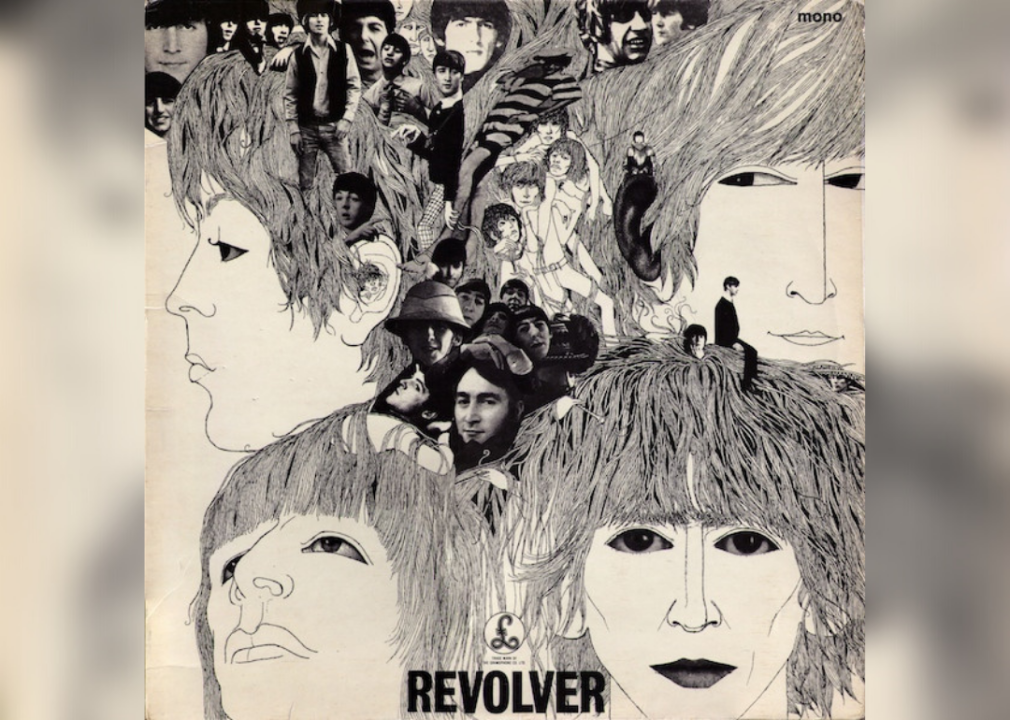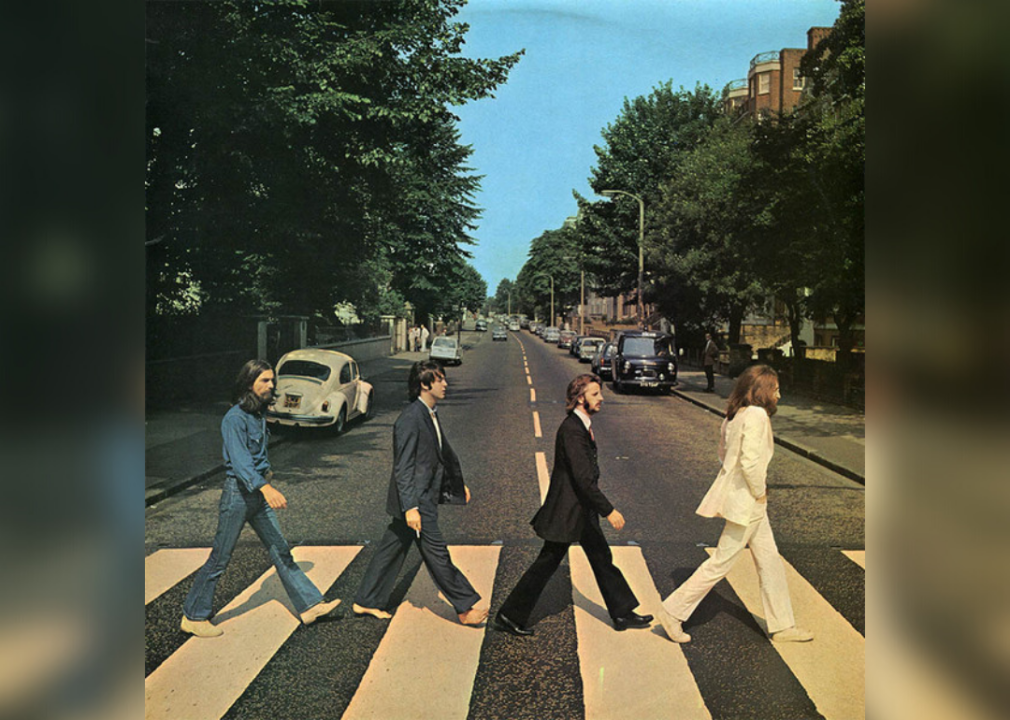Best rock albums of the ’60s
ATCO Records
Best rock albums of the ’60s
When it comes to groundbreaking musical eras, it’s hard to argue against the 1960s being one of the most evolutionary in recent history. This decade ushered in a musical revolution that would change the face of music as a whole—and no other genre was more impacted during that decade than rock.
Just one decade prior, the world was introduced to the concept of rock ‘n’ roll by artists such as Buddy Holly, Chuck Berry, and Elvis Presley, and its impact on American society, notably what was perceived to be the oppressiveness of the postwar middle-class, began a cycle that less than a decade later once again shifted and morphed into something completely new. Throughout the 1960s, artists from across the globe worked to make their marks on the rock genre, pulling inspiration from everything from funk to folk, jazz, and R&B. The result was the creation of sounds and songs that were unlike anything the world had ever heard.
This decade didn’t just birth a new era of rock, either. It also led to the creation of some of the biggest and most enduring names in music history, from Jim Morrison to Jimi Hendrix to Janis Joplin, from The Beatles to Cream to The Kinks, among many, many others. Each of these artists had a unique impact on the genre—releasing groundbreaking albums and helping to shape and form music as we know it today.
But with so many famous—and infamous—artists emerging from this decade, it can be tough to pinpoint what albums were the best and most influential of the time. To narrow down the options, Stacker compiled data on the top rock albums of the ’60s and listed the top 50 according to Best Ever Albums, which ranks albums according to their appearance and performance on 40,000 editorial and data-based charts (e.g., Rolling Stone, Pitchfork, Billboard, etc.). The Best Ever Albums score is derived from a formula that weighs how many charts an album has appeared on and how high it was on each of those charts and awards points accordingly. For a more in-depth methodology, click here. Here’s what we determined are the best rock albums of the 1960s.
You may also like: 30 of the top-grossing music tours of all time
![]()
Parlophone
#50. ‘Please Please Me’ by The Beatles
– Best Ever Albums score: 4,454
– Rank all-time: #434
– Rank in release year (1963): #3
The Beatles’ “Please Please Me” may be one of the biggest rock albums of the 1960s, but it was recorded using a tiny budget. That goes for both the time and money put into this album—which cost just £400 and took less than 10 hours to record.
At the time, the budget at Parlophone was sorely lacking, and the band members were also working on a budget, receiving only the small fees for the album recording sessions they were entitled to under the terms of a Musicians Union agreement.
Decca
#49. ‘Aftermath’ by The Rolling Stones
– Best Ever Albums score: 4,460
– Rank all-time: #433
– Rank in release year (1966): #5
The Rolling Stones’ “Aftermath” was recorded less than seven months after the band’s third record, “Out of Our Heads,” but it signaled a big change for the band. Prior to “Aftermath,” the Stones had been recording songs written by other artists, but Mick Jagger and Keith Richards were behind the writing for every song on “Aftermath,” which resulted in a riskier, edgier sound for the band.
It was also the Stones’ first time recording a full album outside the U.K.; this was at a time when it was not uncommon for there to be U.S. and U.K. “versions” of an album released. Such was the case with “Aftermath,” with only the U.S. version containing what would become one of the group’s staple hits, “Paint It Black.”
Columbia
#48. ‘Sounds of Silence’ by Simon & Garfunkel
– Best Ever Albums score: 4,477
– Rank all-time: #430
– Rank in release year (1966): #4
“Sounds of Silence” by Simon & Garfunkel was a huge hit, thanks in large part to the title track, “The Sound of Silence,” which Paul Simon wrote while living with his parents. But that wasn’t the first time the song had been released.
An acoustic version of the song was included on the band’s 1963 album, “Wednesday Morning, 3 A.M.,” but that album was a complete flop—selling only about 2,000 copies in total upon release. A slightly modified version of the song was re-recorded for “Sounds of Silence,” which brought the duo widespread popularity.
Elektra
#47. ‘The Stooges’ by The Stooges
– Best Ever Albums score: 4,529
– Rank all-time: #426
– Rank in release year (1969): #16
“The Stooges” has long been heralded by critics and punk enthusiasts alike with helping to build the foundation for modern punk music, but the record—and much of The Stooges sound—was actually inspired by the famous blues standards.
Shortly before the album was recorded, Iggy Pop had a revelation that he could write and record his own take on blues songs. That led to the birth of “I Wanna Be Your Dog,” one of the most famous tracks on album, which Iggy wrote after being inspired by a misheard lyric in the blues standard, “Baby Please Don’t Go.”
Atlantic
#46. ‘Crosby, Stills & Nash’ by Crosby, Stills & Nash
– Best Ever Albums score: 4,728
– Rank all-time: #406
– Rank in release year (1969): #15
David Crosby, Stephen Stills, and Graham Nash had all achieved significant levels of fame individually—with the Byrds, Buffalo Springfield, and the Hollies, respectively—before coming together to release this collaborative effort that launched them all into folk rock superstardom.
Curiously, a mistake was made when taking the photo featured on the album cover. The image, which depicts the three band members on a couch outside of an old home, showcases the artists sitting in the reverse order that their names appear just above them. The band later tried to retake the image with the artists in the correct order, but were unable to because the home had been torn down.
You may also like: Song of the summer the year you graduated high school
Atlantic
#45. ‘Otis Blue / Otis Redding Sings Soul’ by Otis Redding
– Best Ever Albums score: 5,175
– Rank all-time: #372
– Rank in release year (1965): #6
It took just two days—July 9–10, 1965—to record “Otis Blue / Otis Redding Sings Soul.” While a two-day recording session would be unusual these days, when many records are recorded over several months’ time and in some cases without all band members in the same place at the same time, that was the standard practice back in the ’60s. Live performances were real money makers at the time.
This meant that less time was spent recording a hit record, like the one Redding released in 1965, and more time was spent playing the hit record’s songs on the road to live audiences.
Reprise
#44. ‘Arthur (Or The Decline And Fall Of The British Empire)’ by The Kinks
– Best Ever Albums score: 5,250
– Rank all-time: #365
– Rank in release year (1969): #14
This 1969 concept album was met with quite a bit of confusion at the time it was released, despite the fact that The Beatles (with “Sgt. Pepper’s Lonely Hearts Club Band”) and The Who (with “Tommy”) had already demonstrated the marketability of the concept album. Just one year prior, the band had released “The Kinks Are the Village Green Preservation Society,” which despite critical acclaim was hardly a commercial success.
The “Arthur” album also faced poor sales levels—but as with the “Village Green” album, it also garnered nearly unanimous critical acclaim, with rock critic Greil Marcus calling it in Rolling Stone “the best British album of 1969.”
Deram
#43. ‘Days Of Future Passed’ by The Moody Blues
– Best Ever Albums score: 5,470
– Rank all-time: #353
– Rank in release year (1967): #13
Believe it or not, much of the success of this late-’60s Moody Blues album should be attributed to the band’s record label. Decca Records wanted to recoup an advance on the money given to the band for recording its coming album and suggested that the group try to blend classical and rock ideas rather than continuing down their rootsy rock path.
The band decided to roll with the idea, putting together an album that had no scrolls or stops between songs. However, the record label had no idea about the band’s plan for “Days of Future Passed,” a complete album of songs with no breaks between them, until the recording was complete and the band presented it. The studio, not particularly impressed, considered not releasing it, but a rep from London Records convinced them to by declaring that he’d gladly take the record off Decca’s hands if they passed on it. The album went on to become a U.K. Top 30 smash.
RCA Victor
#42. ‘Surrealistic Pillow’ by Jefferson Airplane
– Best Ever Albums score: 6,061
– Rank all-time: #321
– Rank in release year (1967): #12
While this was the sophomore record for Jefferson Airplane, it was a first for lead singer Grace Slick, whose vocal prowess helped to launch the psych rock group to international fame. But there’s another very famous lead singer who can take partial credit for the album’s success, too. The album’s jacket credits Jerry Garcia of The Grateful Dead as the band’s “spiritual advisor” for acting as a mediator between the band and the producers, which was meant to help the band retain their artistic vision.
Columbia
#41. ‘At Folsom Prison’ by Johnny Cash
– Best Ever Albums score: 6,196
– Rank all-time: #311
– Rank in release year (1968): #10
The name chosen for “At Folsom Prison” wasn’t just a clever gimmick. Cash, who had received numerous letters from inmates across the country, actually chose to record the album live inside of California’s Folsom State Prison—the first time something like this had been done, though Cash had been playing prison shows since the late 1950s. Cash played not one but two shows at Folsom, and the resulting record proved so popular that he returned to the idea very quickly with 1969’s “At San Quentin.”
You may also like: Songs that dominated Billboard charts the longest
CBS
#40. ‘Bookends’ by Simon & Garfunkel
– Best Ever Albums score: 6,327
– Rank all-time: #304
– Rank in release year (1968): #9
Simon & Garfunkel’s hit song, “Mrs. Robinson,” which is featured on this 1968 album is arguably the band’s most recognizable song. One reason for that is because the song had been included as brief sketches on the soundtrack for the film “The Graduate,” which was released about three months prior, and which was very quickly supplanted at the top of the charts by “Bookends” and its charting singles “A Hazy Shade of Winter” and “At the Zoo.”
Capitol Records
#39. ‘Music From Big Pink’ by The Band
– Best Ever Albums score: 6,693
– Rank all-time: #285
– Rank in release year (1968): #8
There’s a widespread belief that “Music From Big Pink” was recorded at Big Pink, a house in West Saugerties, New York, where Bob Dylan and The Band recorded “The Basement Tapes.” That is, after all, what the album name would signal. But the truth is that the album wasn’t actually recorded at Big Pink—it was recorded in New York City, and later sessions were held in Los Angeles. Still, Dylan was a big influence on the album—he penned the classic “I Shall Be Released” and co-wrote two others, though he did not contribute his voice.
ATCO Records
#38. ‘Disraeli Gears’ by Cream
– Best Ever Albums score: 7,393
– Rank all-time: #264
– Rank in release year (1967): #11
Cream had little to do with naming “Disraeli Gears,” though the title would seem to lend itself to a very ’60s mentality that the band’s music evokes. The origin of the album name can actually be attributed to the band’s roadie, Mick Turner, who overheard Eric Clapton discussing his desire for a “must-own” racing bike with Ginger Baker. At the time, the top racing bikes were equipped with derailleur gears, which led Turner to ask Clapton whether the bike he wanted had disraeli gears. After a good long laugh, Cream’s new record had its name.
Elektra
#37. ‘Strange Days’ by The Doors
– Best Ever Albums score: 7,468
– Rank all-time: #260
– Rank in release year (1967): #10
The title track to “Strange Days” wasn’t just an epic song about the emerging hippie culture of the time, it was also one of the earliest uses of the Moog synthesizer, which had been developed by American engineer Robert Moog only a few years prior. The Doors used the Moog synthesizer to make lead singer Jim Morrison’s vocals evoke an uneasy or strange feel. It was innovative techniques like this that helped to differentiate The Doors’ sound from other psychedelic or experimental rock of the time.
Parlophone
#36. ‘A Hard Day’s Night’ by The Beatles
– Best Ever Albums score: 7,936
– Rank all-time: #238
– Rank in release year (1964): #1
During their early years, The Beatles consistently covered other musicians’ songs, but 1964’s “A Hard Day’s Night” signaled a turning point for the band in that it featured only songs written by the duo of Paul McCartney and John Lennon, and in the lone case of “I’m Happy Just to Dance with You,” George Harrison. The Beatles’ reign as teen heartthrobs took on an added dimension as they would come to be seen as more than able players of others’ music but legitimate artists in their own right.
You may also like: Boy bands to top the Billboard charts since 1980
Capitol Records
#35. ‘The Band’ by The Band
– Best Ever Albums score: 8,007
– Rank all-time: #235
– Rank in release year (1969): #13
The Band’s eponymous second album was eagerly anticipated despite the fact that the group had not played a single formal live performance. This was unusual, given the moderate success of their first album, “Music From Big Pink,” which dropped one year prior.
Moreover, few people actually knew who was in The Band, as they had only given a few interviews to the press, the most high-profile of which was the now-infamous “Rolling Stone” cover story, which featured an image of band members with their backs to the cameras—not exactly a pose to inspire recognizability.
Parlophone
#34. ‘Help!’ by The Beatles
– Best Ever Albums score: 8,235
– Rank all-time: #231
– Rank in release year (1965): #5
The soundtrack for The Beatles’ second feature film of the same name, “Help” wasn’t the album’s original name. “Eight Arms To Hold You” was the working title of the film (and soundtrack), but was changed at some point prior to its release. Perhaps even more interesting is John Lennon and Paul McCartney’s respective takes on the origin of the single, “Ticket to Ride.”
Polydor
#33. ‘Tommy’ by The Who
– Best Ever Albums score: 8,241
– Rank all-time: #230
– Rank in release year (1969): #12
There are numerous albums that have been categorized as rock operas, but it was The Who’s “Tommy” that paved the way for what was to come. Pete Townshend experimented with a multi-song story concept previously on the band’s “A Quick One While He’s Away” and “Rael,” but “Tommy” is considered the world’s first rock opera because, in its construction, it has more in common with classical opera than rock music.
Keith Moon got the credit for writing the song “Tommy’s Holiday Camp,” but it was Pete Townshend who wrote and sang it. Moon just came up with the idea of a holiday camp cult, which is the basis for the song.
Straight
#32. ‘Trout Mask Replica’ by Captain Beefheart & His Magic Band
– Best Ever Albums score: 8,299
– Rank all-time: #229
– Rank in release year (1969): #11
“Trout Mask Replica” may be a classic today, but it was a commercial flop when it was released in 1969. It spent just one week at #21 on the U.K. Albums Chart and didn’t even register in the U.S. Still, the years have been kind to the album, which is now seen as an avant-rock masterpiece.
Track Record
#31. ‘Axis: Bold As Love’ by The Jimi Hendrix Experience
– Best Ever Albums score: 8,358
– Rank all-time: #227
– Rank in release year (1967): #9
The recording of “Axis: Bold As Love” came right on the heels of the release of “Are You Experienced?” and got off to a good start before the band succumbed to pressure to perform live, which put recording on the backburner. Hendrix, however, owed his label, Track Records, another album before 1967 was out. This led to a quick recording session, which interestingly allowed Hendrix to play with aural arrangements and push his concept of a record meant to be taken in at a single listen. The result is still considered one of the Experience’s most rewarding works.
You may also like: 30 pop songs you may not know are covers
Reprise
#30. ‘Everybody Knows This Is Nowhere’ by Neil Young & Crazy Horse
– Best Ever Albums score: 8,749
– Rank all-time: #214
– Rank in release year (1969): #9
Musicians draw inspiration for their music from a wide array of sources, but Neil Young’s source of inspiration for three of the seven tracks on his solo debut “Everybody Knows This Is Nowhere” is quite unusual. While stuck in bed with a 103 degree fever, Young wrote not only the 10-minute album closer, “Cowgirl In The Sand,” but “Cinnamon Girl” and “Down By The River” as well.
Reprise
#29. ‘Hot Rats’ by Frank Zappa
– Best Ever Albums score: 8,983
– Rank all-time: #204
– Rank in release year (1969): #8
“Hot Rats” wasn’t just Frank Zappa’s solo debut; it was also the first album to be recorded on a prototype 16-track tape machine. This allowed Zappa to experiment and play with new overdub techniques, creating a sound that was unlike anything that music fans had heard before. What’s equally unique about this album is that it includes almost no lyrics, aside from the vocals from Captain Beefheart at the start of the blues rock track, “Willie the Pimp.”
Island Records
#28. ‘Five Leaves Left’ by Nick Drake
– Best Ever Albums score: 10,342
– Rank all-time: #169
– Rank in release year (1969): #7
Singer-songwriter Nick Drake’s 1969 debut may be now widely considered one of the most important records of the decade, but the album failed to perform after its initial release. Named after the manufacturer’s message that was inserted in packets of Rizla cigarette papers, this album sold less than 5,000 copies on its initial release—despite achieving critical acclaim. The record’s commercial failure was likely due, at least in part, to the fact that Drake was extremely reluctant to perform live or conduct interviews.
Columbia
#27. ‘The Piper At The Gates Of Dawn’ by Pink Floyd
– Best Ever Albums score: 10,786
– Rank all-time: #163
– Rank in release year (1967): #8
Pink Floyd’s debut album is widely heralded as not only one of the most influential albums of the 1960s, but one of the most influential of all time—despite never making a dent in the Billboard Top 100 rankings in the U.S. It is also the only Pink Floyd album to be made under founding member Syd Barrett’s leadership, though Barrett was featured on a handful of tracks on Pink Floyd’s second album as well. The album was recorded at Abbey Road Studios and produced by former Beatles producer Norman Smith.
Decca
#26. ‘Beggars Banquet’ by The Rolling Stones
– Best Ever Albums score: 10,899
– Rank all-time: #162
– Rank in release year (1968): #7
“Beggars Banquet” now stands as one of the top Stones albums of all time, but it turns out the album could have been an even bigger commercial hit than it wound up being. Despite the band recording the hit song “Jumping Jack Flash” during the “Banquet” recording sessions, it was released as a single rather than being included on the album, and hit #1 in the U.K. and #3 in the U.S.
The band also had plans to promote the album with a television event featuring John Lennon, Eric Clapton, The Who, and Jethro Tull—but the Stones were unhappy with their own set list for the show, which is why the “Rock and Roll Circus” did not see the light of day until 1996.
You may also like: Most-nominated artists who have never won a Grammy
Reprise
#25. ‘The Kinks Are The Village Green Preservation Society’ by The Kinks
– Best Ever Albums score: 11,093
– Rank all-time: #158
– Rank in release year (1968): #6
The Kinks cofounder Ray Davies famously labeled the band’s sixth studio album “the most successful flop ever,” and for good reason. While now considered one of the best 1960s rock albums of all time, the album did not chart when it was first released. It finally received gold certification in 2018—half a century after it was released—an event on which Davies’ had another droll remark: “This is like what they give somebody when they retire.”
Columbia
#24. ‘Songs Of Leonard Cohen’ by Leonard Cohen
– Best Ever Albums score: 11,311
– Rank all-time: #154
– Rank in release year (1967): #7
Leonard Cohen initially had no intention of singing the songs he recorded for this album. Cohen intended to get other musicians to record the vocals for the songs he wrote—but his musician friend, Judy Collins, thought her audience would love to hear the songwriter sing instead. Collins convinced Cohen to join her onstage to sing “Suzanne,” the song Collins had recorded vocals for. Her influence ultimately led Cohen down a new path to what would become one of the most beloved records of the decade and a landmark in Cohen’s oeuvre.
Verve
#23. ‘White Light/White Heat’ by The Velvet Underground
– Best Ever Albums score: 11,745
– Rank all-time: #146
– Rank in release year (1968): #5
The Velvet Underground’s second album was recorded on the heels of Lou Reed firing Andy Warhol—who had produced the band’s debut album. Though many fans and critics alike believe the album’s title track is an ode to methamphetamine use, Lou Reed, in interviews subsequent to the album’s release, pointed toward his interest in metaphysics as the lodestar for the song’s inspiration.
Columbia
#22. ‘Bringing It All Back Home’ by Bob Dylan
– Best Ever Albums score: 15,180
– Rank all-time: #100
– Rank in release year (1965): #4
This 1965 album drew up a lot of controversy for Dylan, who was known as an acoustic folk singer. The album marked the first time Dylan used electric instrumentation in a recording—which was a big no-no in folk music at the time. What’s more, since Dylan had become so well known for being steeped in a folk tradition that leaned heavily on protest songs, fans were jarred to find a collection of songs that departed from that tradition, focusing more on romance and poetic expression than hard-scrabble messages of revolt.
Verve
#21. ‘The Velvet Underground’ by The Velvet Underground
– Best Ever Albums score: 15,634
– Rank all-time: #94
– Rank in release year (1969): #6
The Velvet Underground’s eponymous third album was a significant departure from the band’s prior sound, featuring love ballads and straightforward rock songs rather than the gritty, distorted sound of “White Light/White Heat.”
This made it a hit with critics—who widely praised the band’s new approach to their music—but despite the critical acclaim, the album struggled to gain commercial success—due in large part to the band’s own record label failing to promote it, as well as the subsequent dissolution of the band as singer Lou Reed moved forward on his own with 1972’s “Transformer.”
You may also like: Can you answer these real ‘Jeopardy!’ questions about music?
CBS
#20. ‘Odessey and Oracle’ by The Zombies
– Best Ever Albums score: 17,023
– Rank all-time: #88
– Rank in release year (1968): #4
The Zombies’ second studio album was initially met with indifference by critics and music fans alike. Over the decades, however, the album has grown in reputation—in large part for the inclusion of one of the band’s greatest hits “Time of the Season”—and the album cover itself has become part of the band’s legacy, all thanks to the misspelling of the word “odyssey.”
This happened as the result of a mistake made by the LP’s cover designer, but the band initially tried to pass it off as intentional. It wasn’t until much later that they confirmed the album’s unusual title was actually the result of a mistake.
Capitol Records
#19. ‘Magical Mystery Tour’ by The Beatles
– Best Ever Albums score: 17,665
– Rank all-time: #86
– Rank in release year (1967): #6
The concept for this album was as a soundtrack to a made-for-TV film bearing the same name. Following the death of their manager, Brian Epstein, the band, which had put the project on hold to turn their attention to a transcendental meditation seminar held by Maharishi Mahesh Yogi, went back into the studio to flesh out the songs and add additional singles that would justify the release of a full LP.
The resulting album, which was released as two EPs in the U.K. and a full LP in the U.S., contains the six songs featured in the film, and five additional singles, among them classics “Penny Lane” and “All You Need is Love.” The film, incidentally, was poorly received in large part due to the BBC airing it in black and white rather than full color, which stripped much of its psychedelic aura away.
Elektra
#18. ‘Forever Changes’ by Love
– Best Ever Albums score: 19,940
– Rank all-time: #72
– Rank in release year (1967): #5
Love’s “Forever Changes” was written with a unique perspective in mind. According to band leader Arthur Lee, he had a premonition that the summer of 1967 would be his last—and wrote the record as his manifesto and testament.
At the time of the recording, the band was also facing internal strife due to broken relationships and drug use—which made for some extremely intense sessions alongside an already frazzled Lee. At one point, things got so bad that session musicians were brought in by Lee and co-lead Bryan MacLean to help record the album’s first two songs, which shocked the band so badly that it resulted in some members crying during the recording session.
Reprise
#17. ‘Electric Ladyland’ by The Jimi Hendrix Experience
– Best Ever Albums score: 20,503
– Rank all-time: #70
– Rank in release year (1968): #3
It may be the “Jimi Hendrix Experience,” but there was another famous artist on this 1968 classic as well. Whitney Houston’s mom, Cissy Houston, sang backing vocals on “Burning of the Midnight Lamp.”
The last album recorded by Hendrix prior to his death in 1970, “Electric Ladyland” also has some interesting musical experiments, which were deliberately left on the record during the recording. This includes Rolling Stones member Brian Jones using a vibra-slap on Jimi’s version of Bob Dylan’s “All Along the Watchtower”—after showing up to inebriated to play the song on the piano. Dylan later said he found Jimi’s version of “Watertower” to be better than his original.
Decca
#16. ‘Let It Bleed’ by The Rolling Stones
– Best Ever Albums score: 21,020
– Rank all-time: #65
– Rank in release year (1969): #5
“Let It Bleed” was recorded at a time when the Stones were in the midst of a crisis, in the form of Brian Jones’ descent into heavy drug use, which made him unreliable—either due to absence or incapacitation—during recording sessions. This led to Jones being fired and subsequently replaced by Mick Taylor while the band continued to cut the album. As a result, Jones only played backing instruments on two of the album’s songs—and died less than a month after his departure from the band.
You may also like: Most successful musical artists of all time
Warner Bros. – Seven Arts Records
#15. ‘Astral Weeks’ by Van Morrison
– Best Ever Albums score: 21,072
– Rank all-time: #64
– Rank in release year (1968): #2
“Astral Weeks” may stand in the upper echelon of Van Morrison’s early output, but upon its release Warner Brothers inexplicably opted not to release any of the album’s songs as singles. In turn, none of the songs on this album ever charted—which meant that Morrison saw little commercial success from this record. Still, it managed to have a big impact on music and pop culture, with Martin Scorsese crediting the album for inspiring the first 15 minutes of his film, “Taxi Driver.”
Atlantic
#14. ‘Led Zeppelin’ by Led Zeppelin
– Best Ever Albums score: 22,055
– Rank all-time: #56
– Rank in release year (1969): #4
It only took about 36 hours of studio time to create Led Zeppelin’s debut album. Even though it is appreciated as a scion of the band’s undeniable influence on rock, especially as a harbinger of its later 1970s sound, the album received numerous poor reviews from music critics shortly after it dropped.
Rolling Stone critics were particularly tough on the band, questioning Jimmy Page’s production and writing skills and panning Robert Plant for being a less exciting Rod Stewart. These days, the album is heralded as one of the most important albums from the era, but it took time—and continuous radio play by rock stations—to change the view of the band’s debut. In 2001, rock critic Greg Kot made amends in Rolling Stone for that earlier brutal review, giving the album five stars and conceding that “hard rock would never be the same.”
Atlantic
#13. ‘Led Zeppelin II’ by Led Zeppelin
– Best Ever Albums score: 27,744
– Rank all-time: #41
– Rank in release year (1969): #3
Led Zeppelin’s second studio album released shortly after their debut received a much warmer welcome from critics than their debut. The album was also a quick commercial success, reaching #1 on both the U.K. and U.S. charts—knocking The Beatles’ “Abbey Road” from the top spot twice over on the latter.
Part of the reason for that success can be attributed to the hit single, “Whole Lotta Love,” which eventually became a top-10 single on charts in at least a dozen markets worldwide. The record is credited with helping usher rock into the 1970s, with guitarist Jimmy Page saying, “The goal was synesthesia. Creating pictures with sound.”
Track Record
#12. ‘Are You Experienced’ by The Jimi Hendrix Experience
– Best Ever Albums score: 28,948
– Rank all-time: #38
– Rank in release year (1967): #4
“Are You Experienced” has been cited by critics and fans as a perfect example of sound cohesiveness, but the record was not recorded in continuous sessions. It was recorded piecemeal over a five-month period due to the band’s hectic schedule of live performances, which makes the cohesive sound of the album even more impressive.
Even more surprising is the fact that drummer Mitch Mitchell almost didn’t make the cut after he repeatedly showed up late for rehearsals and recording sessions. This led to the band trying to replace Mitchell, but the drummer cleaned up his act and became more reliable after having his weekly pay docked.
Columbia
#11. ‘Blonde On Blonde’ by Bob Dylan
– Best Ever Albums score: 32,058
– Rank all-time: #31
– Rank in release year (1966): #3
Bob Dylan’s ‘Blonde On Blonde’ album wasn’t the only double album to emerge from the 1960s—but it does hold the distinction of being the first, which was made possible by Dylan’s penchant for all-night recording sessions. And it wasn’t just the album that was longer than average, either. Dylan’s song, “Sad Eyed Lady of the Lowlands,” which is an 11-minute song about his then-wife, is also rock music’s first side-long track, taking up all of side four on the album’s vinyl release.
You may also like: Lyrics to 50 famously misunderstood songs, explained
Elektra
#10. ‘The Doors’ by The Doors
– Best Ever Albums score: 34,190
– Rank all-time: #30
– Rank in release year (1967): #3
It was a short road from playing L.A.’s Whisky a Go Go to The Doors’ self-titled debut, but it is one paved with rock legend. The band had been fired from the Whisky for “illicit” lyrical changes to their eventual long-play classic “The End,” but the energy behind those early performances found its way into the subsequent recording sessions.
Keyboardist Ray Manzarek said, in the documentary “Classic Albums: The Doors,” that the entirety of the record was “‘The Doors: Live from the Whisky a Go Go’ … except in a recording studio.” Despite singer Jim Morrison’s reputation as the band’s spiritual and lyrical leader, the band’s biggest single, “Light My Fire,” came not from Morrison, but guitarist Robby Krieger.
Parlophone
#9. ‘Rubber Soul’ by The Beatles
– Best Ever Albums score: 35,530
– Rank all-time: #28
– Rank in release year (1965): #2
There was an extremely tight turnaround from recording to release for “Rubber Soul.” The album was recorded in October and November 1965, and subsequently released in time for Christmas, just a few weeks after the final mixing was complete. The album’s title is actually a dig against The Rolling Stones: As the story goes, Paul McCartney heard an American man refer to the Stones as “good, but plastic soul,” and that served as the seed for the album’s bloom.
Columbia
#8. ‘Highway 61 Revisited’ by Bob Dylan
– Best Ever Albums score: 36,579
– Rank all-time: #26
– Rank in release year (1965): #1
“Highway 61 Revisited” was Dylan’s second album of 1965 and it shattered the invisible barrier that had separated traditional folk from a new, modern form. It was his first record to go beyond just him and his guitar, and one of its most famous tracks would find its inspiration in a decidedly non-folk place: “Like a Rolling Stone” was directly influenced by Richie Valens’ pop hit, “La Bamba.” Less than a week after the song hit airwaves, Dylan took the stage at the Newport Rock Festival, backed, to some showgoers’ chagrin, by an electric band.
Island Records
#7. ‘In The Court Of The Crimson King’ by King Crimson
– Best Ever Albums score: 37,094
– Rank all-time: #24
– Rank in release year (1969): #2
King Crimson’s prog-rock masterpiece nearly was never to be, when the master tapes were misplaced during the production process, which led to the album being released off an imperfect master. Subsequently reissued several times during the 1980s and 1990s, nothing in quality was gained, because the reissues were made using the same inferior copies.
The original masters were finally discovered in the Virgin Records archives in 2003, which allowed the album to be remastered yet again—correctly this time—and reissued for its 40th anniversary in what should have been its original form.
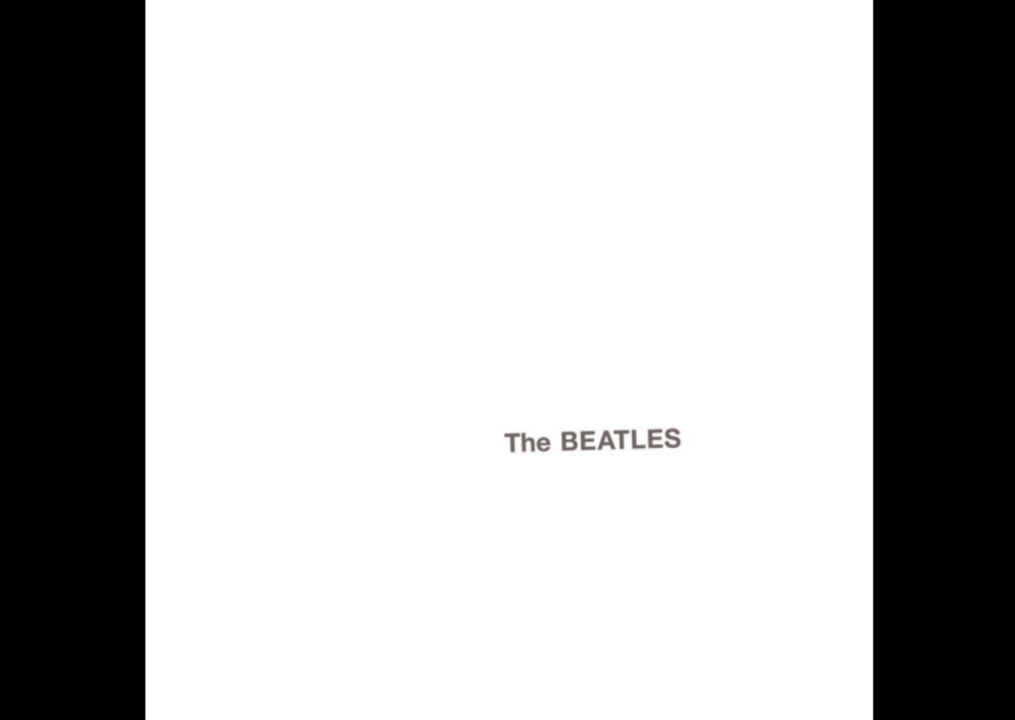
Apple Records
#6. ‘The Beatles (The White Album)’ by The Beatles
– Best Ever Albums score: 51,078
– Rank all-time: #14
– Rank in release year (1968): #1
The recording of “The Beatles (The White Album)” led to fractures within the relationships of the band, none more demonstrable than the near-loss of Ringo Starr. Evidently, during recording sessions Starr began to feel like an outsider, and this sense of isolation goaded him into abandoning the rest of the band and going off to Sardinia for a fortnight (on a yacht borrowed from actor Peter Sellers).
It did not take long for John, Paul, and George to realize how much they needed their drummer, and sent him a telegram telling him they thought he was the best rock drummer in the world, they loved him, and begged him to return. And return he did, to a colorful greeting from his bandmates—“Welcome Back, Ringo” spelled out in flowers on his drum kit.
You may also like: Top 100 country songs of all time
Capitol Records
#5. ‘Pet Sounds’ by The Beach Boys
– Best Ever Albums score: 52,855
– Rank all-time: #12
– Rank in release year (1966): #2
In December 1964 on a flight to Houston for the start of a tour, cofounder Brian Wilson experienced a panic attack that left him prone and sobbing on the cabin floor. Realizing he could not mentally or emotionally handle the stress of a full-blown tour, he opted to return to California, reasoning that the band should go on without him, but that he would use the time to write them a trove of great songs for a new record—which is exactly what he did.
While the rest of The Beach Boys flitted around the country in 1965, Wilson hunkered down and produced much of the orchestration on “Pet Sounds” himself, with the help of a series of studio musicians. Later, Wilson’s perfectionist nature would influence the album’s famous hit, “Wouldn’t It Be Nice,” when he demanded such perfection that it took over a week to record the vocals.
Verve
#4. ‘The Velvet Underground & Nico’ by The Velvet Underground & Nico
– Best Ever Albums score: 55,314
– Rank all-time: #10
– Rank in release year (1967): #2
Andy Warhol’s effect on The Velvet Underground’s 1967 classic goes beyond its famous cover painting. Warhol introduced the band to German singer Nico, whose vocals played an influential role in how the band approached recording. Lou Reed chose to experiment with a mix of guitar rock, distortion, free jazz feedback, and nontraditional sound concepts when composing, resulting in what was initially seen as a demanding listening experience.
Sales were almost nonexistent when the album was released, but like many others on this list, the quality of the music gained in reputation as time went on. Warhol’s influence, incidentally, stopped with the finding of Nico; though credited as producer on the album, John Cale and Tom Wilson actually served that function, with Warhol acting as more of a gatekeeper against record label interference.
Parlophone
#3. ‘Sgt. Pepper’s Lonely Hearts Club Band’ by The Beatles
– Best Ever Albums score: 62,779
– Rank all-time: #6
– Rank in release year (1967): #1
The band you see on the cover of this 1967 album is not, in fact, The Beatles—though they bear a striking resemblance. No, it’s Sgt. Pepper’s Lonely Hearts Club Band. Producer George Martin encouraged the band to reach for “the impossible,” and one way Paul McCartney felt they could get there would be to metaphorically step into a new band’s shoes. Thus a kind of alter-ego band concept grew out of the more than 400 studio recording hours the band put into “Sgt Pepper’s,” and the result is one the greatest high-concept rock albums ever made.
Parlophone
#2. ‘Revolver’ by The Beatles
– Best Ever Albums score: 68,415
– Rank all-time: #4
– Rank in release year (1966): #1
While the artwork on “Sgt. Pepper’s” may have cost a mint, the cover of “Revolver” was a relative steal in comparison. Created by the band’s friend, Klaus Voormann, the art cost the band just £50—and took Voormann about three weeks to create. The album marked the continuation of a new creative period for the band following the “Rubber Soul” sessions that saw George Harrison step up as a lyricist, contributing three songs including “Taxman,” though the guitar solo on that cut belonged to Paul McCartney.
Odeon
#1. ‘Abbey Road’ by The Beatles
– Best Ever Albums score: 76,641
– Rank all-time: #3
– Rank in release year (1969): #1
The “Abbey Road” recording sessions marked the “end of the road” for The Beatles, as this was the last time the band would record all together, but they resulted in a decade-defining album. The record’s famous cover photo was taken at a crossing in northwest London near Abbey Road Studios, where The Beatles recorded the album, which still serves as a beacon for Beatles fans who visit the city.
To this day, there is some confusion as to whether this or “Let It Be” was the actual last recorded Beatles record, however, the latter was laid down a few months before “Abbey Road” but not released until more than a year later.
You may also like: 30 musicians with legendarily long careers
